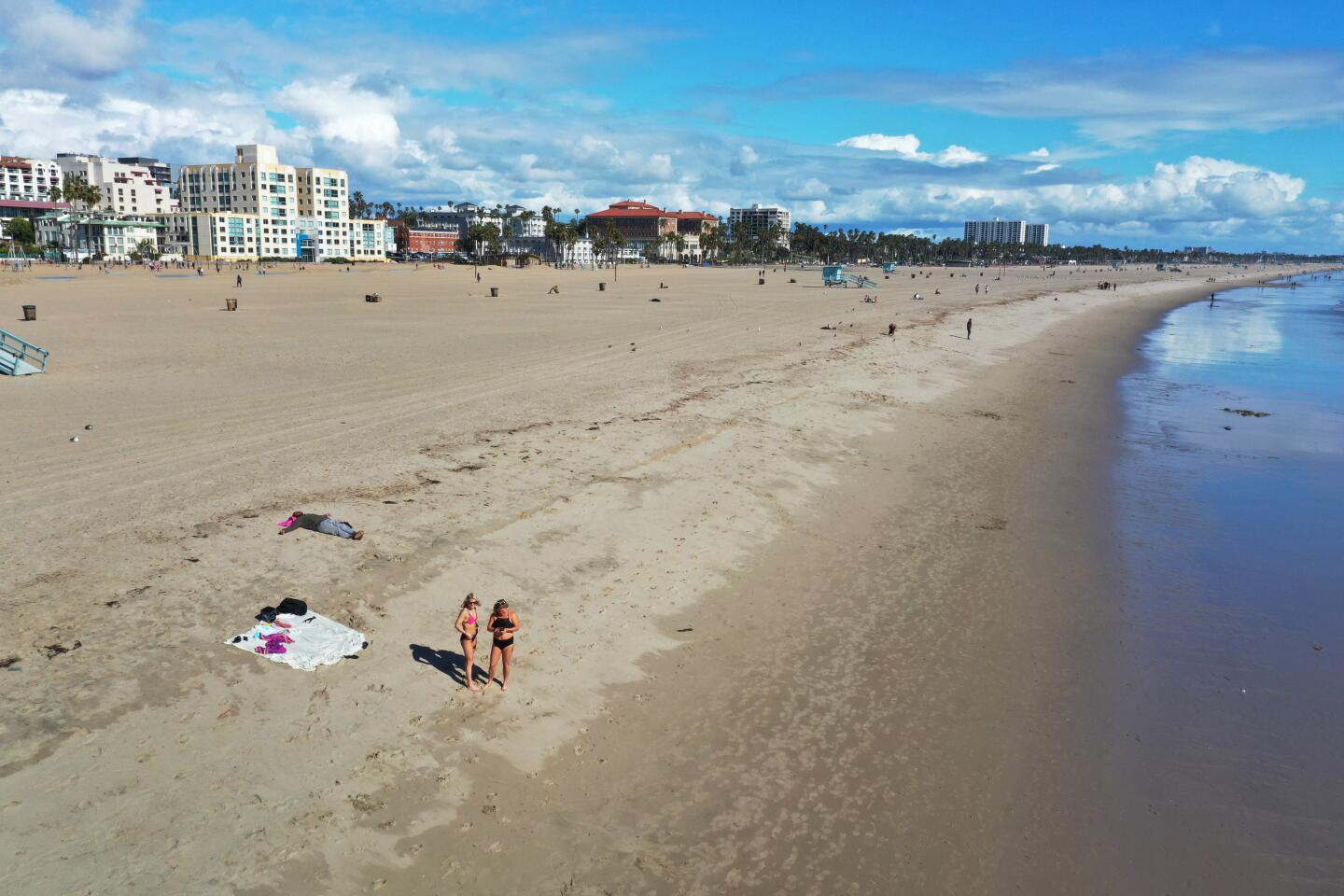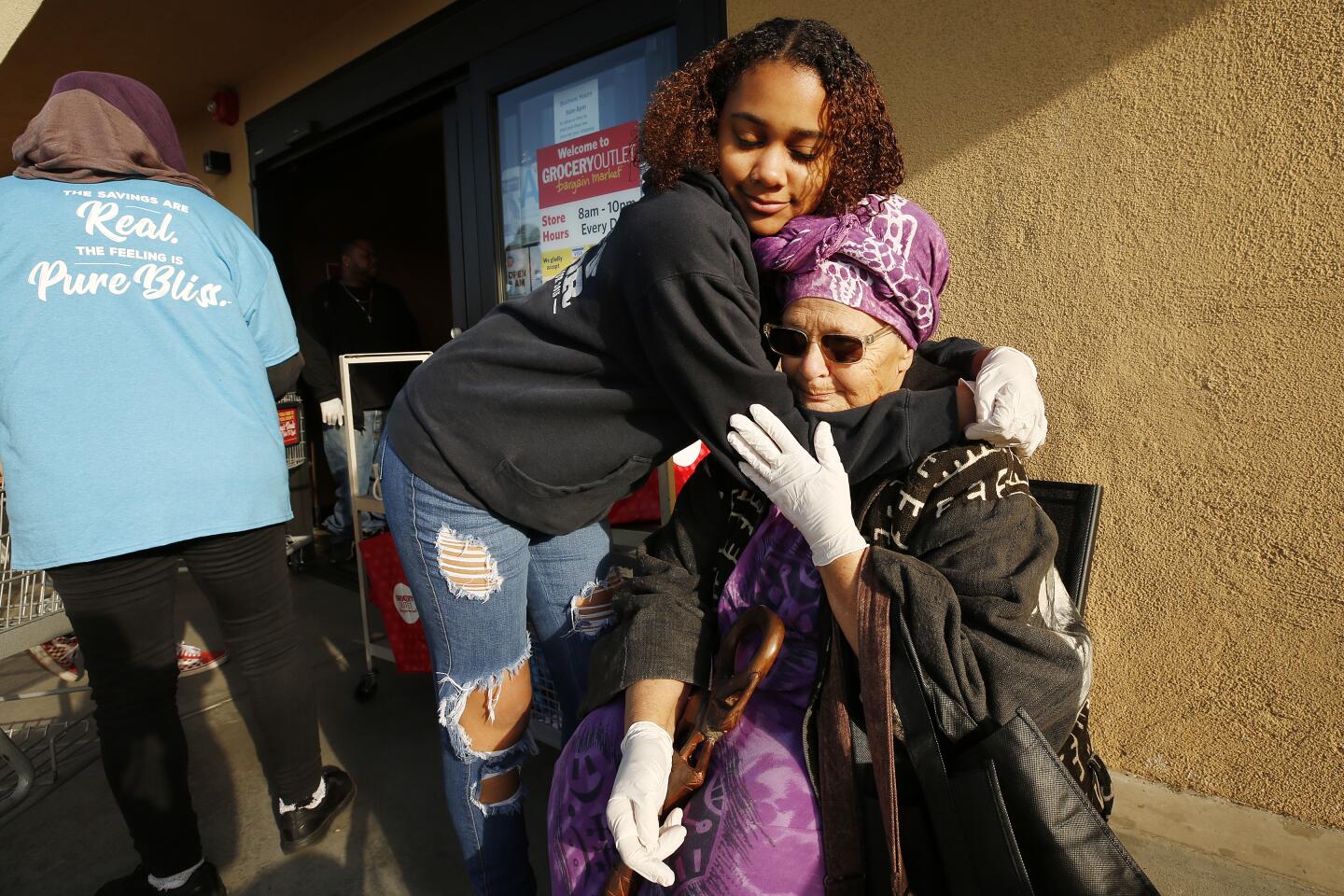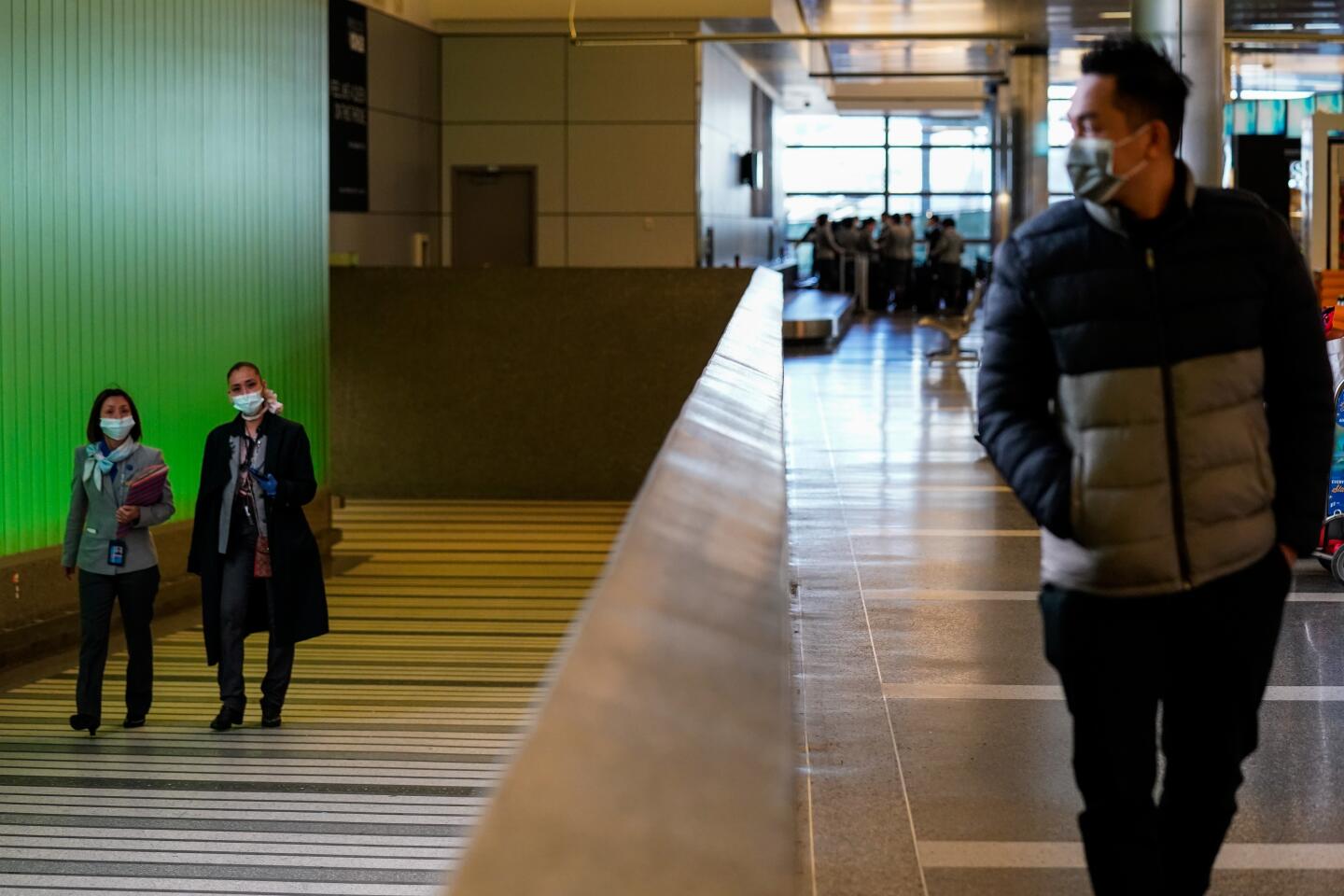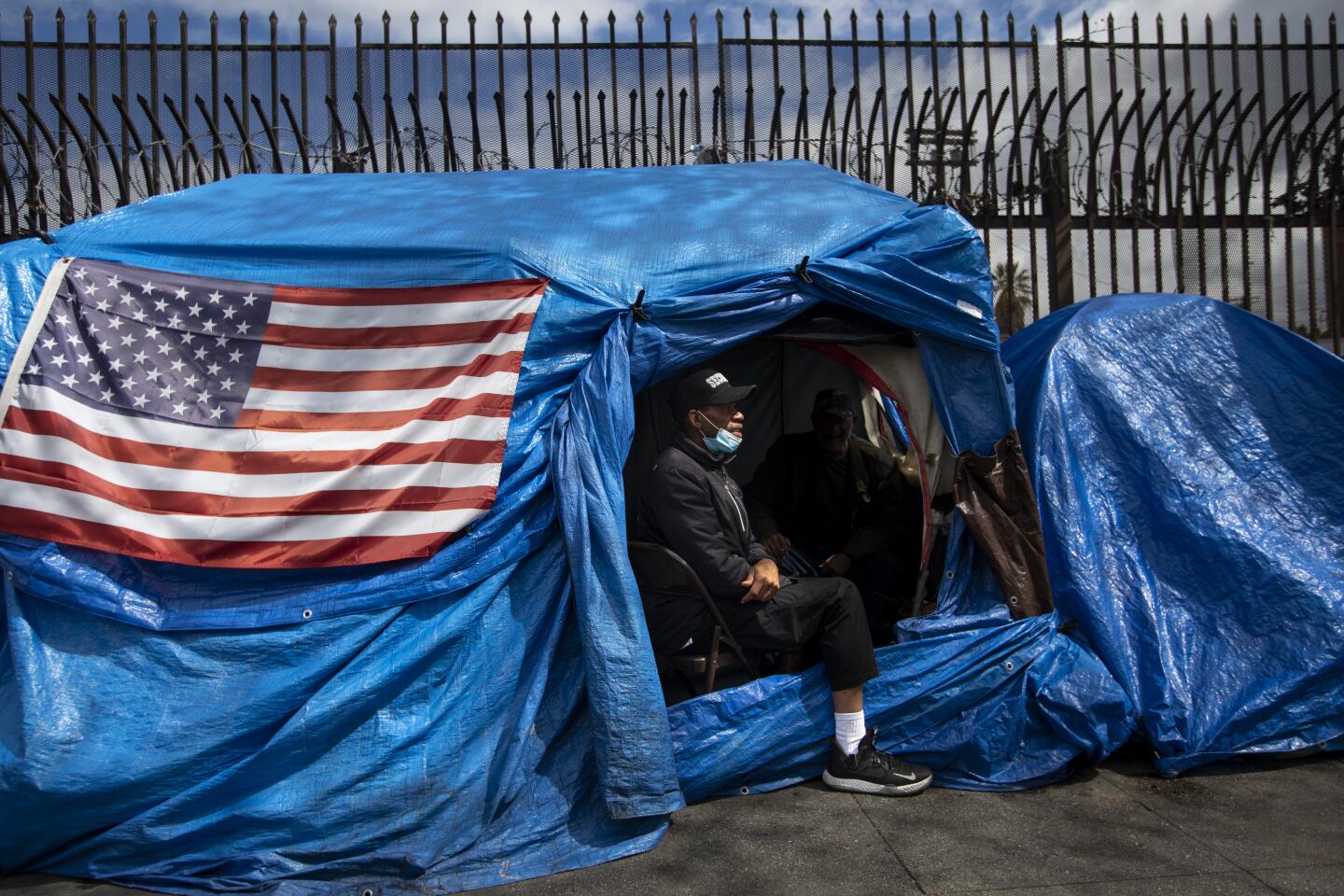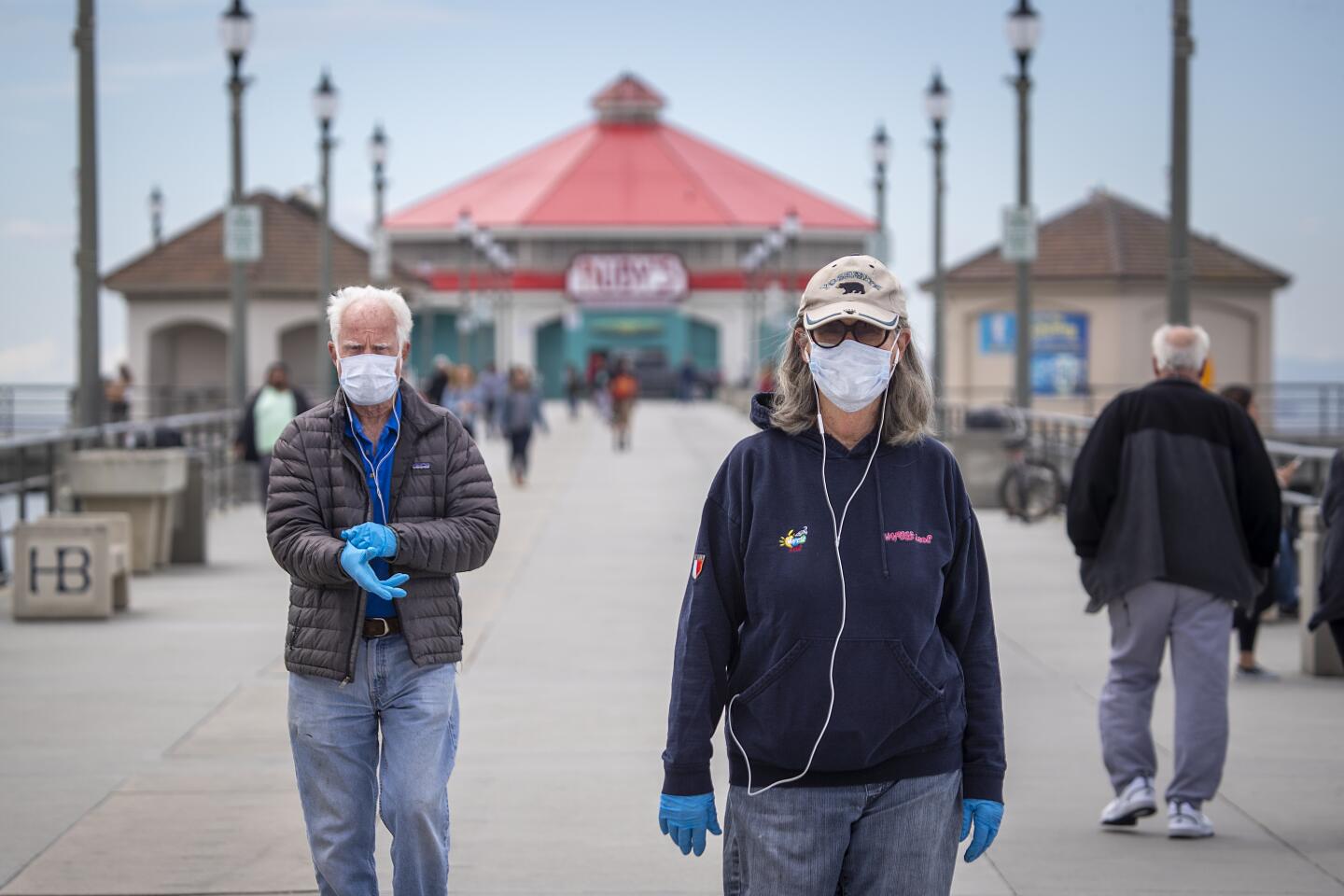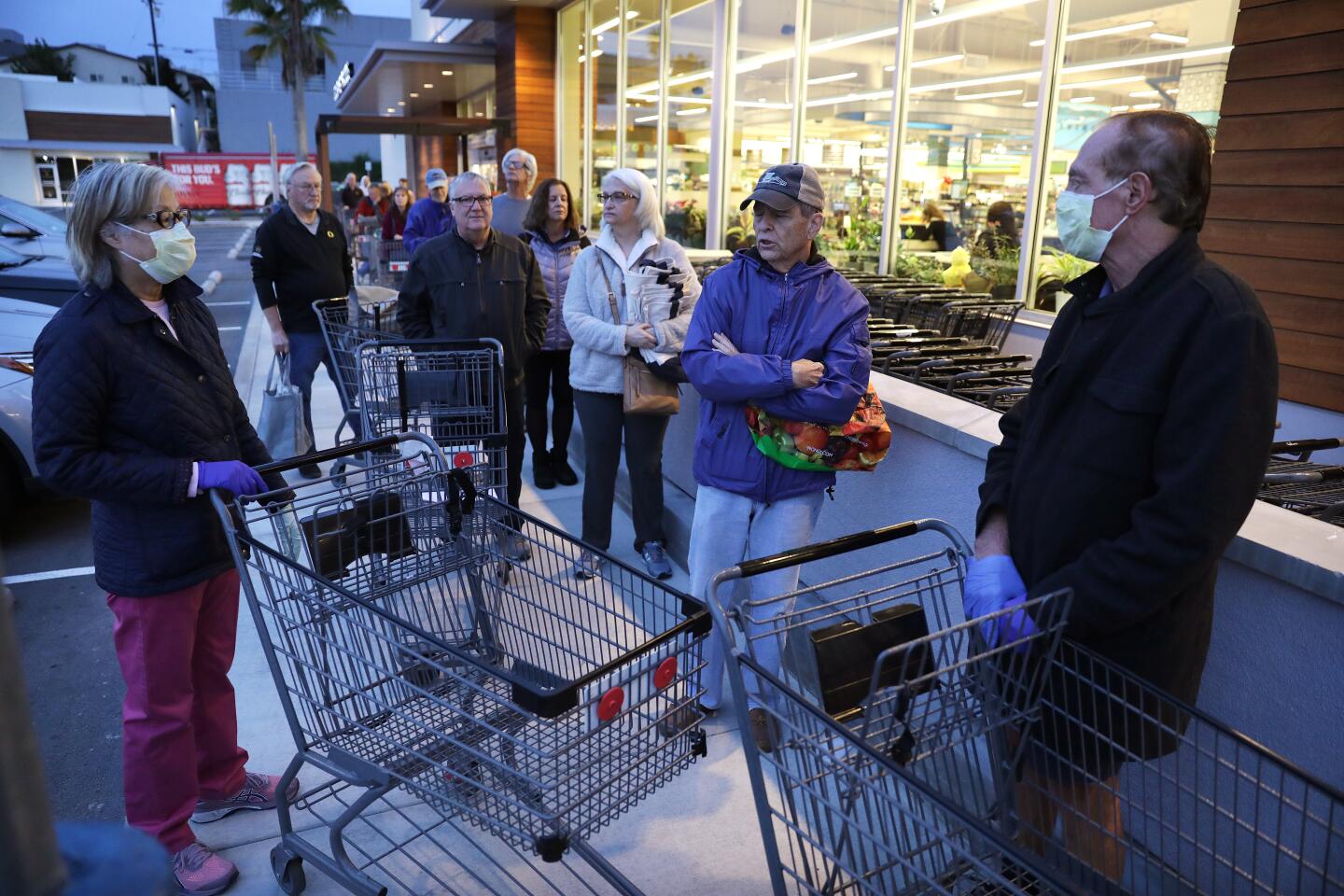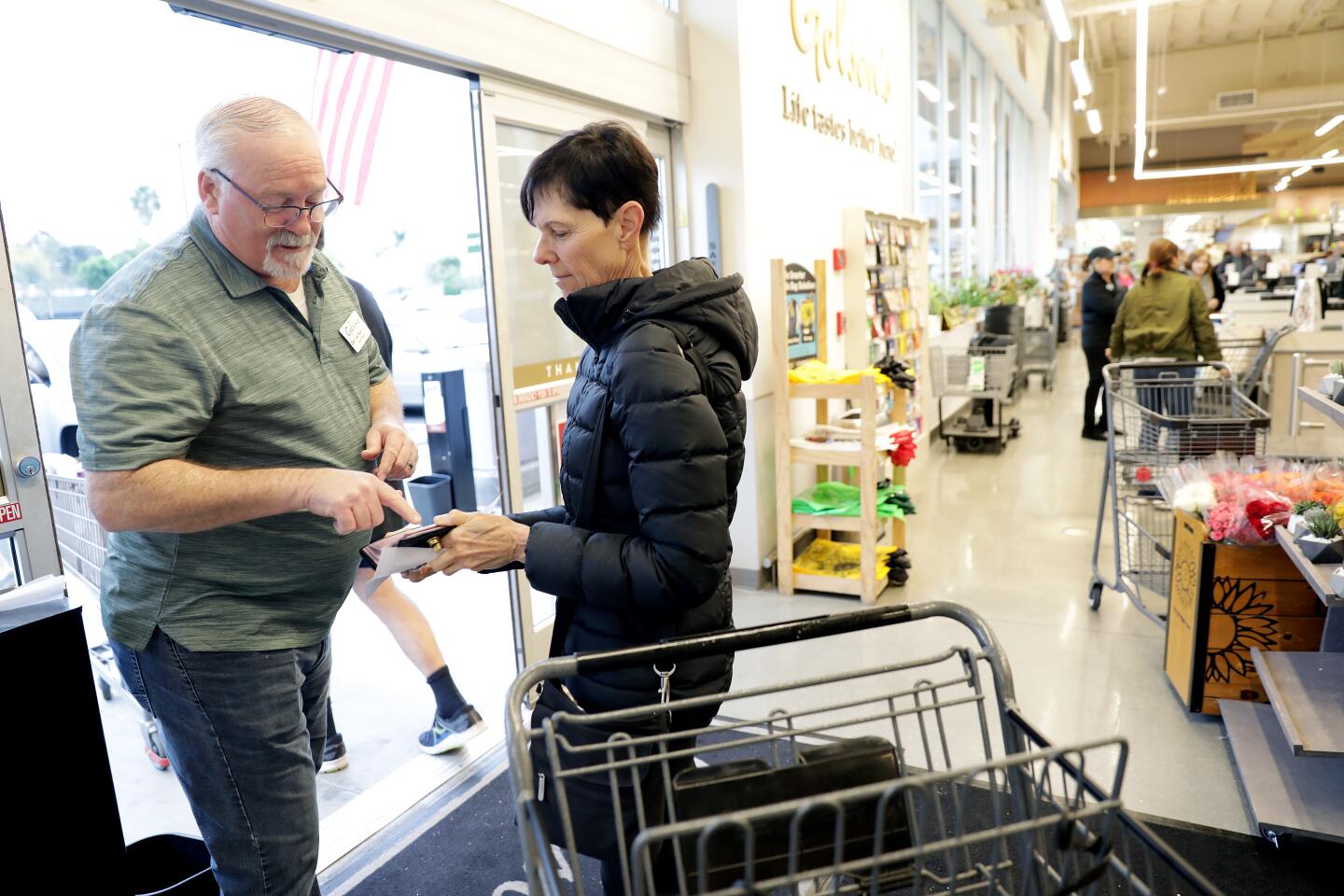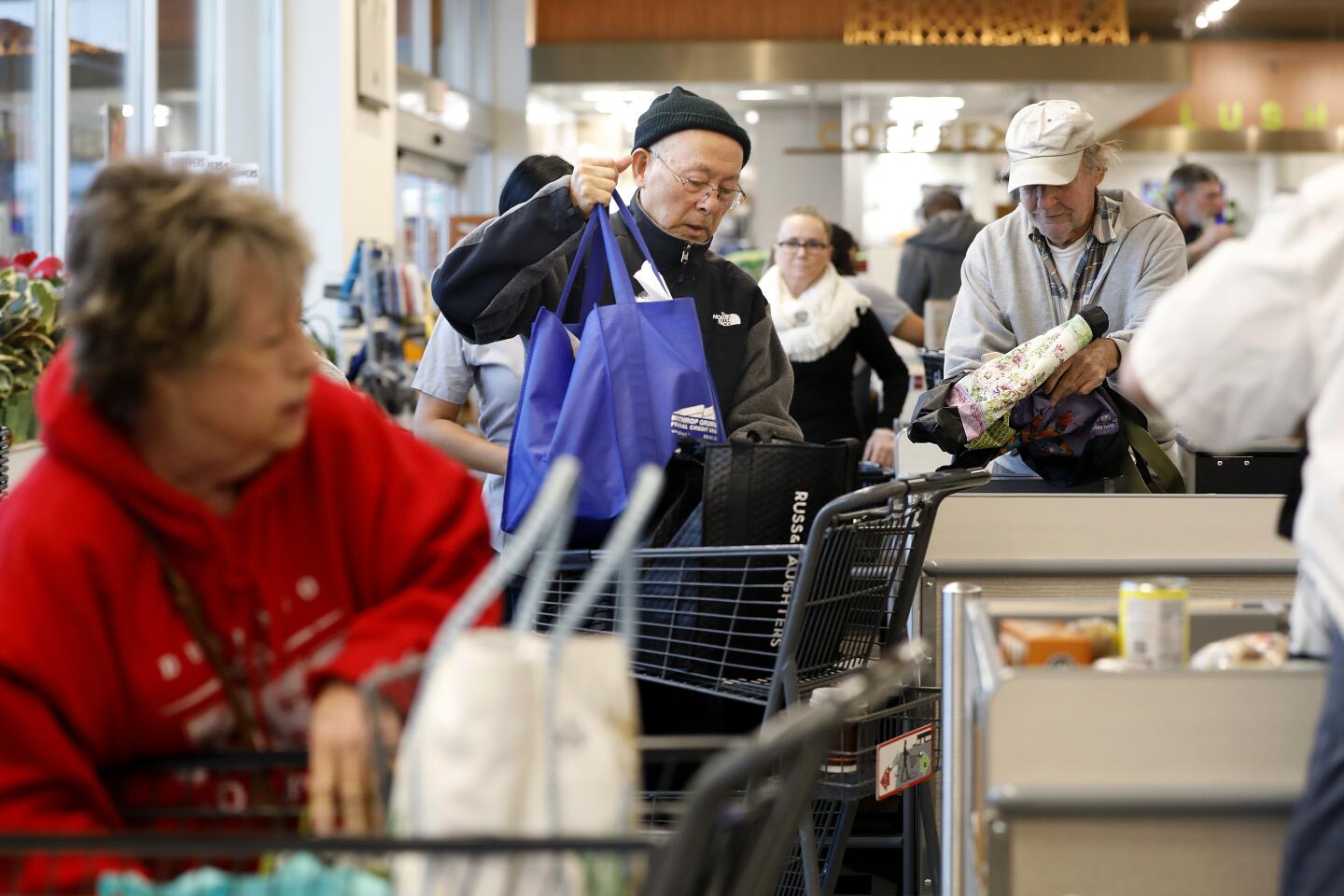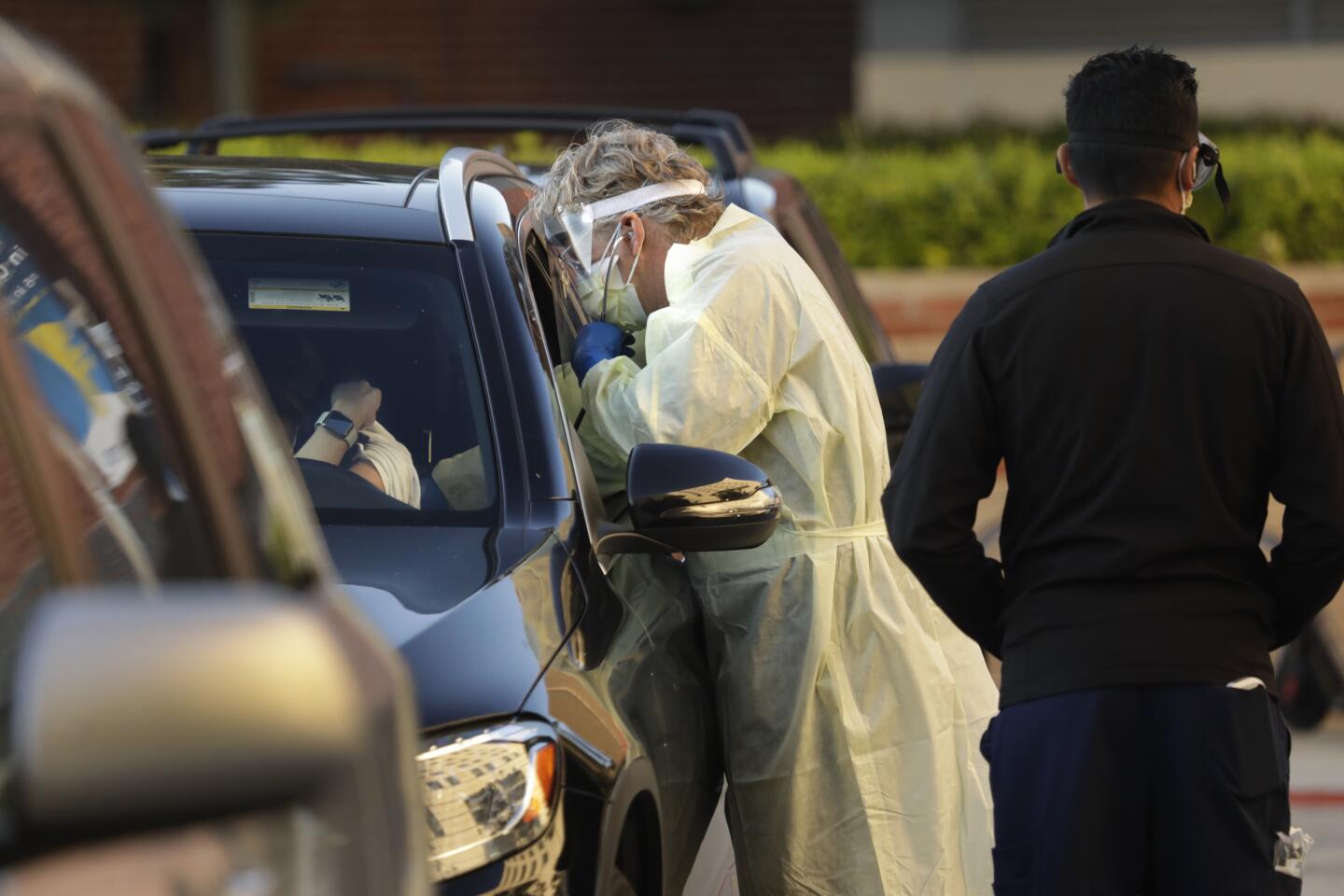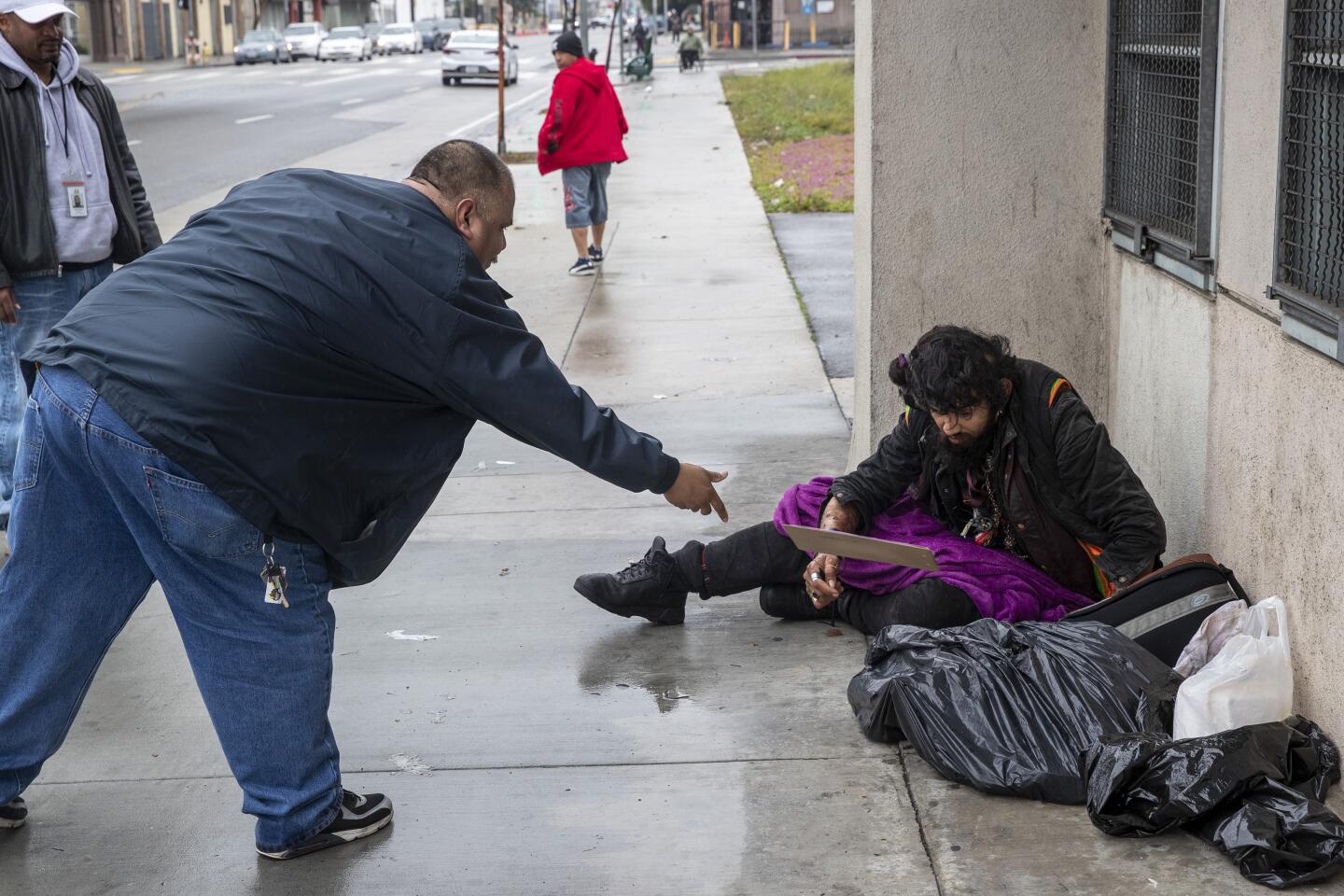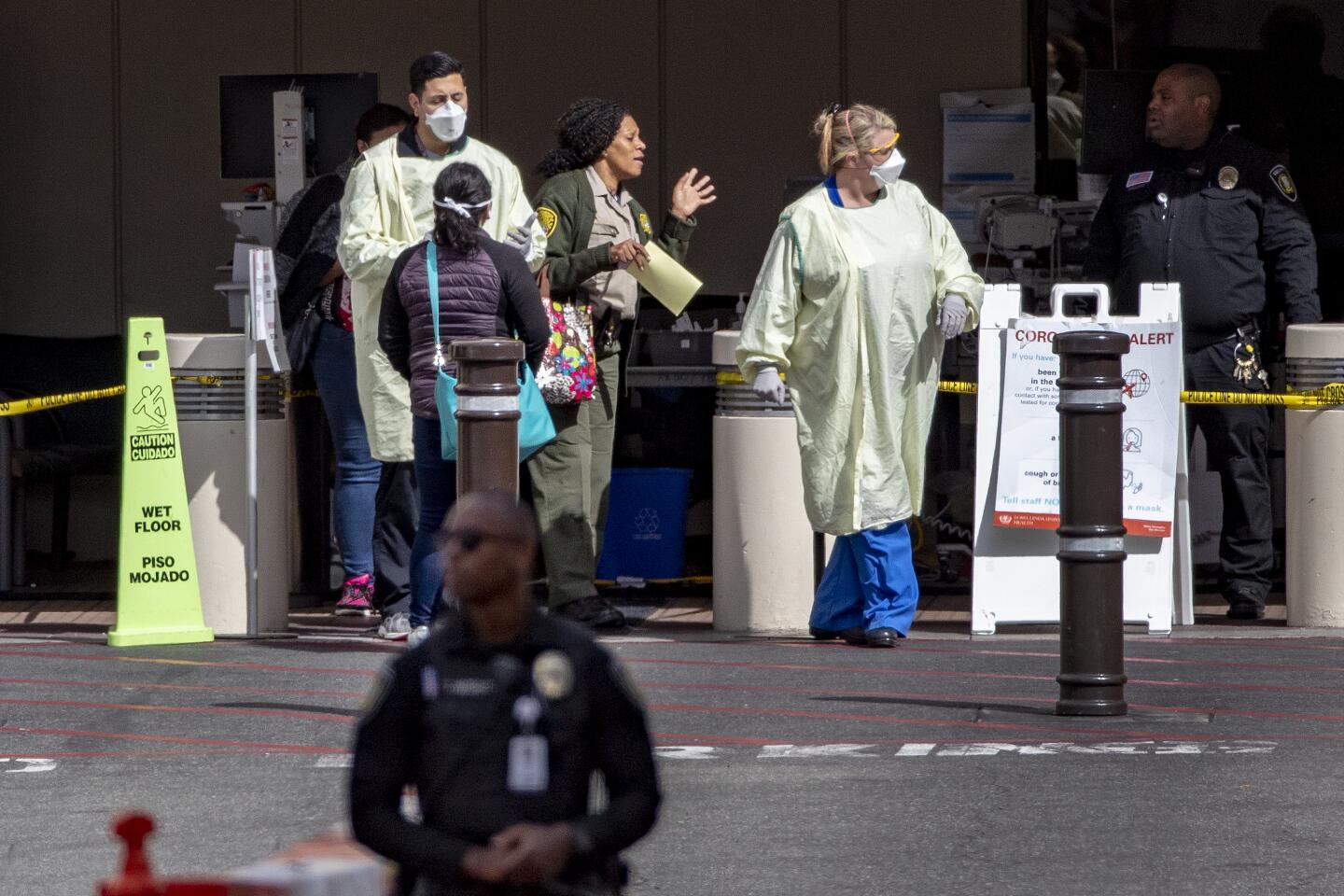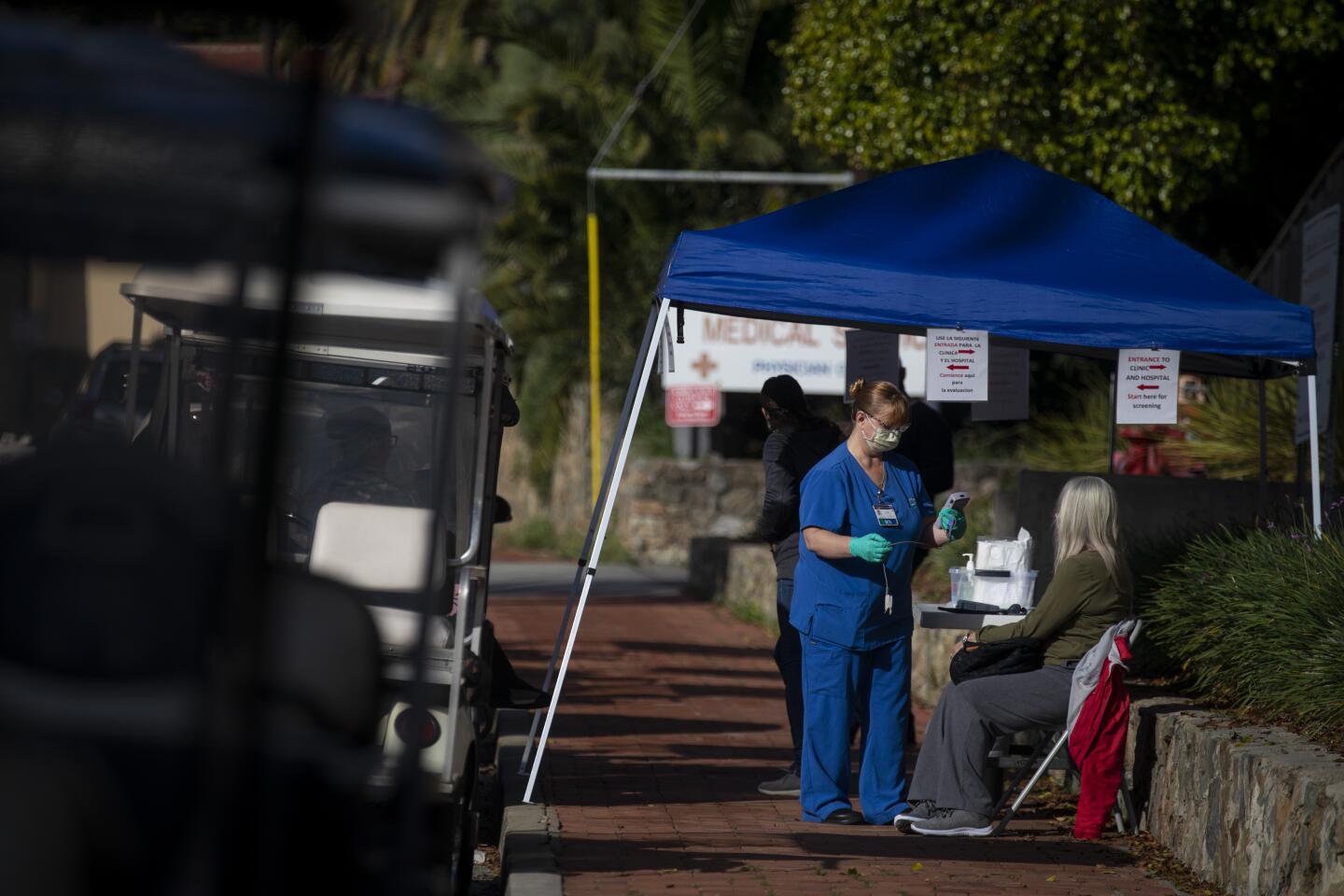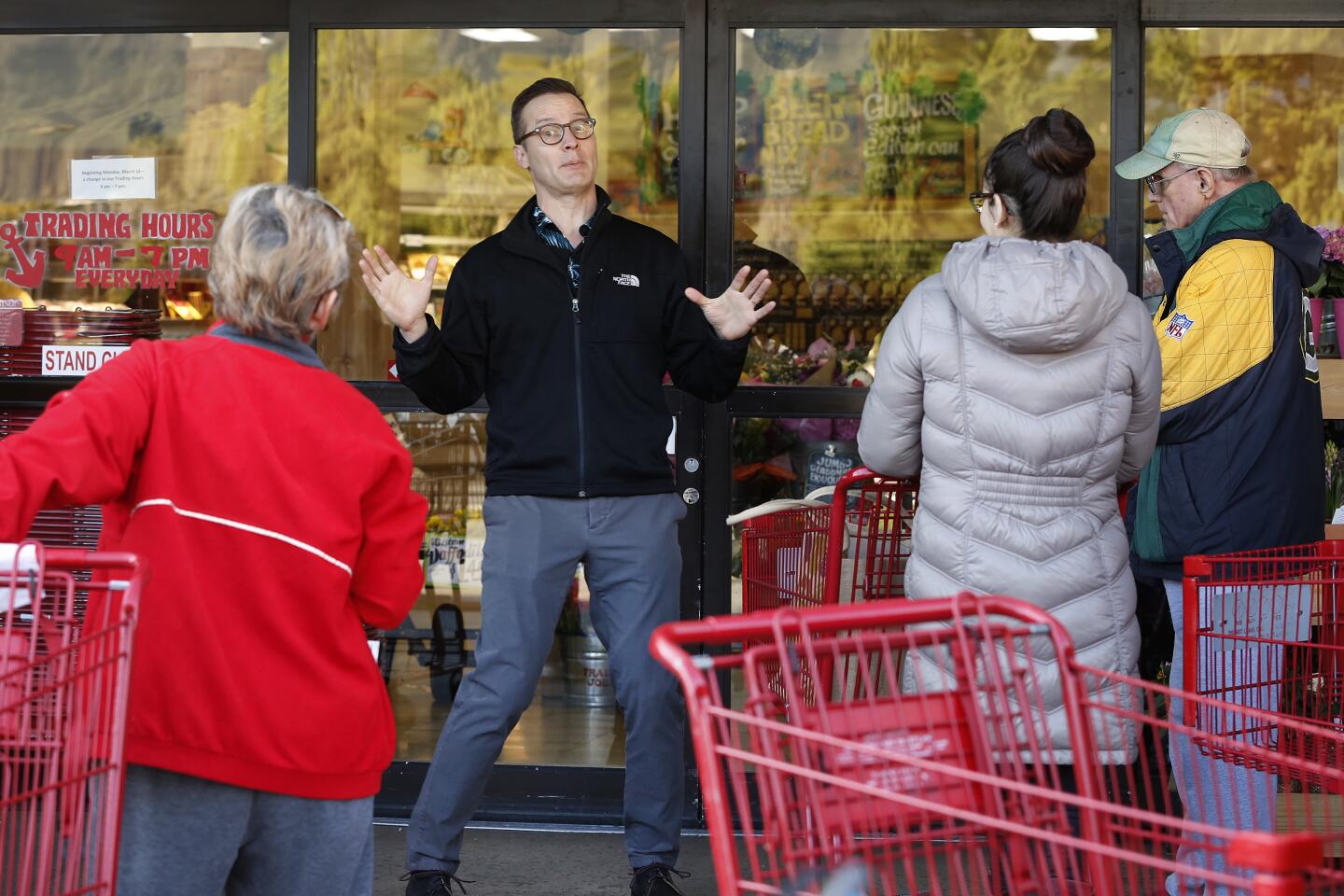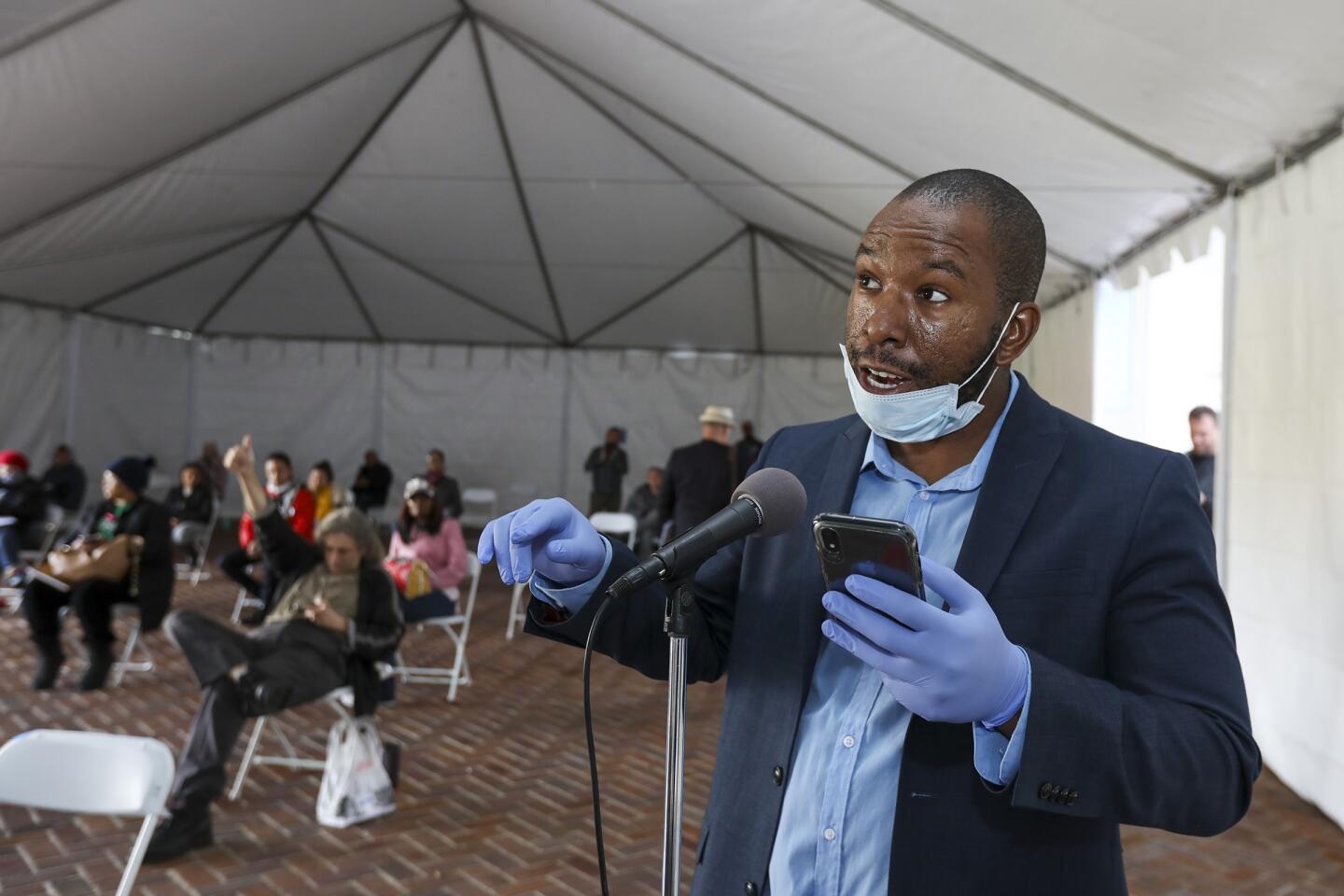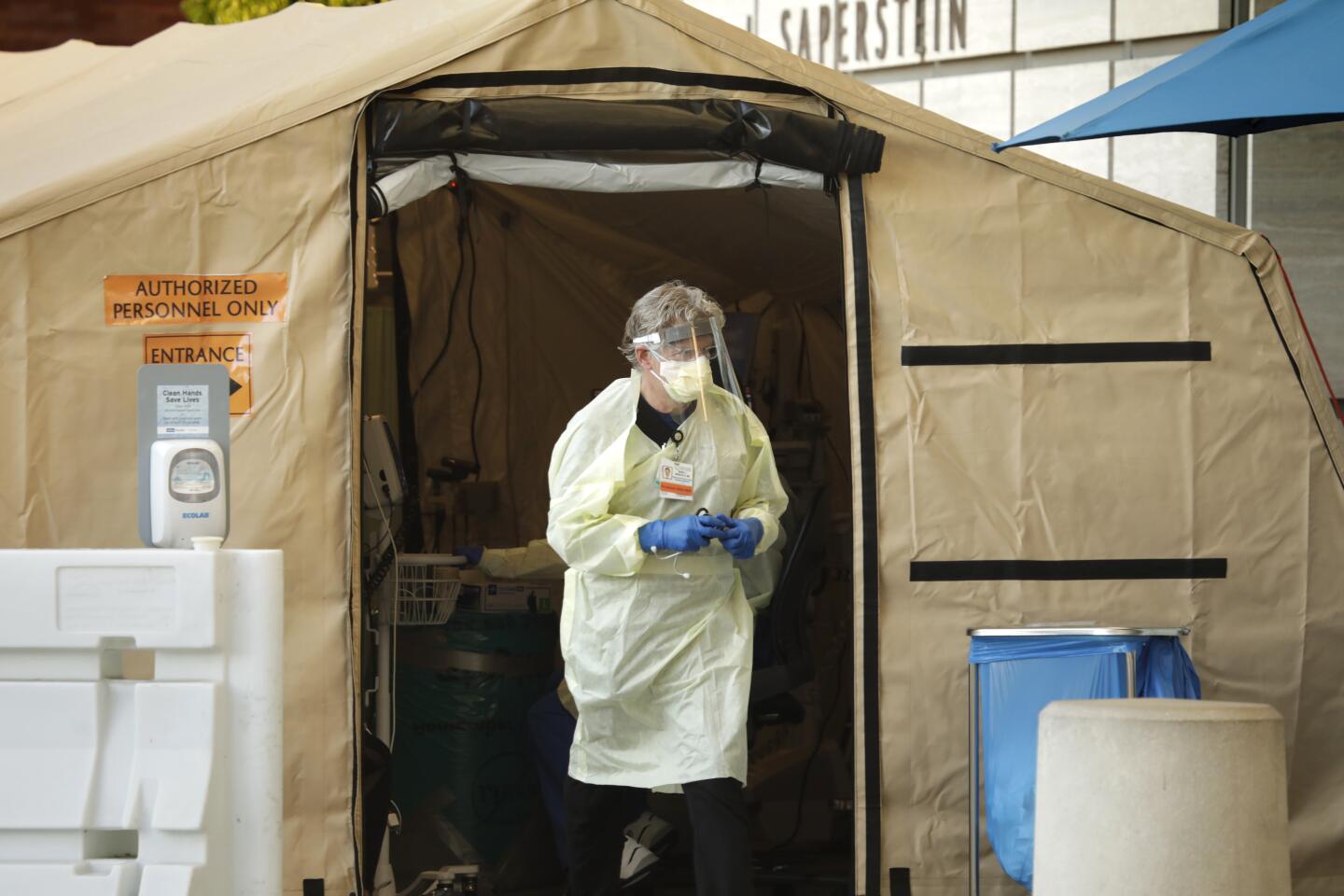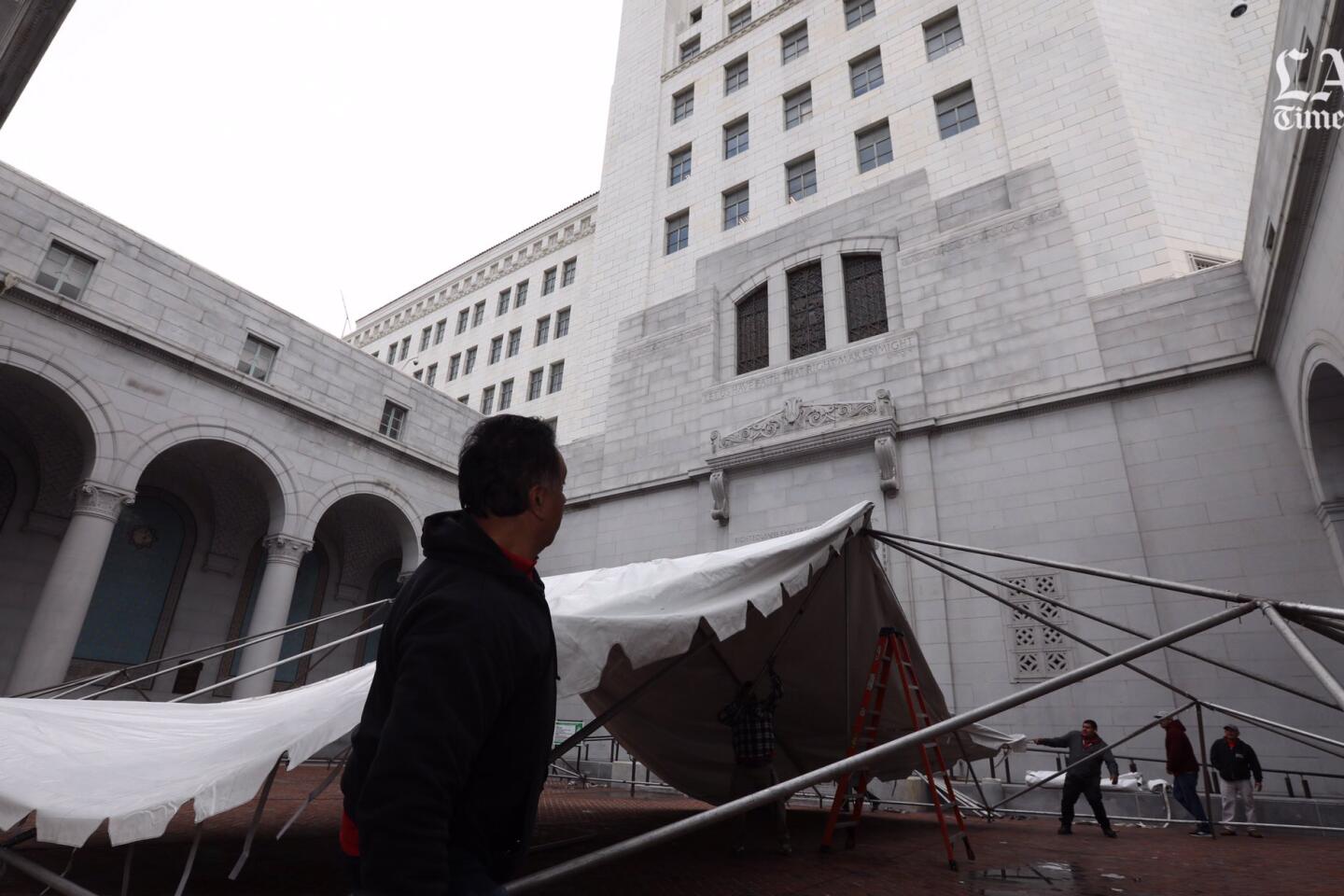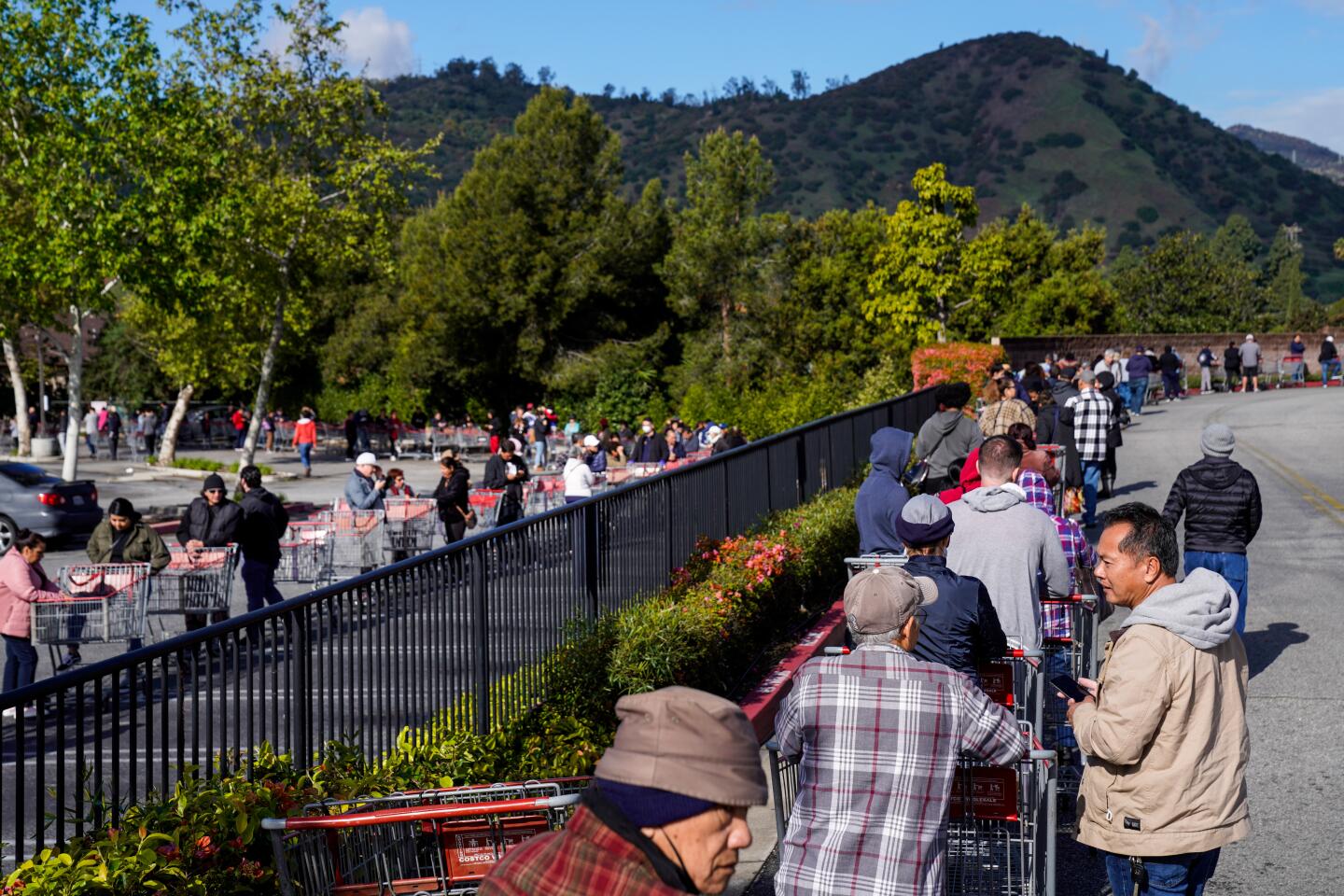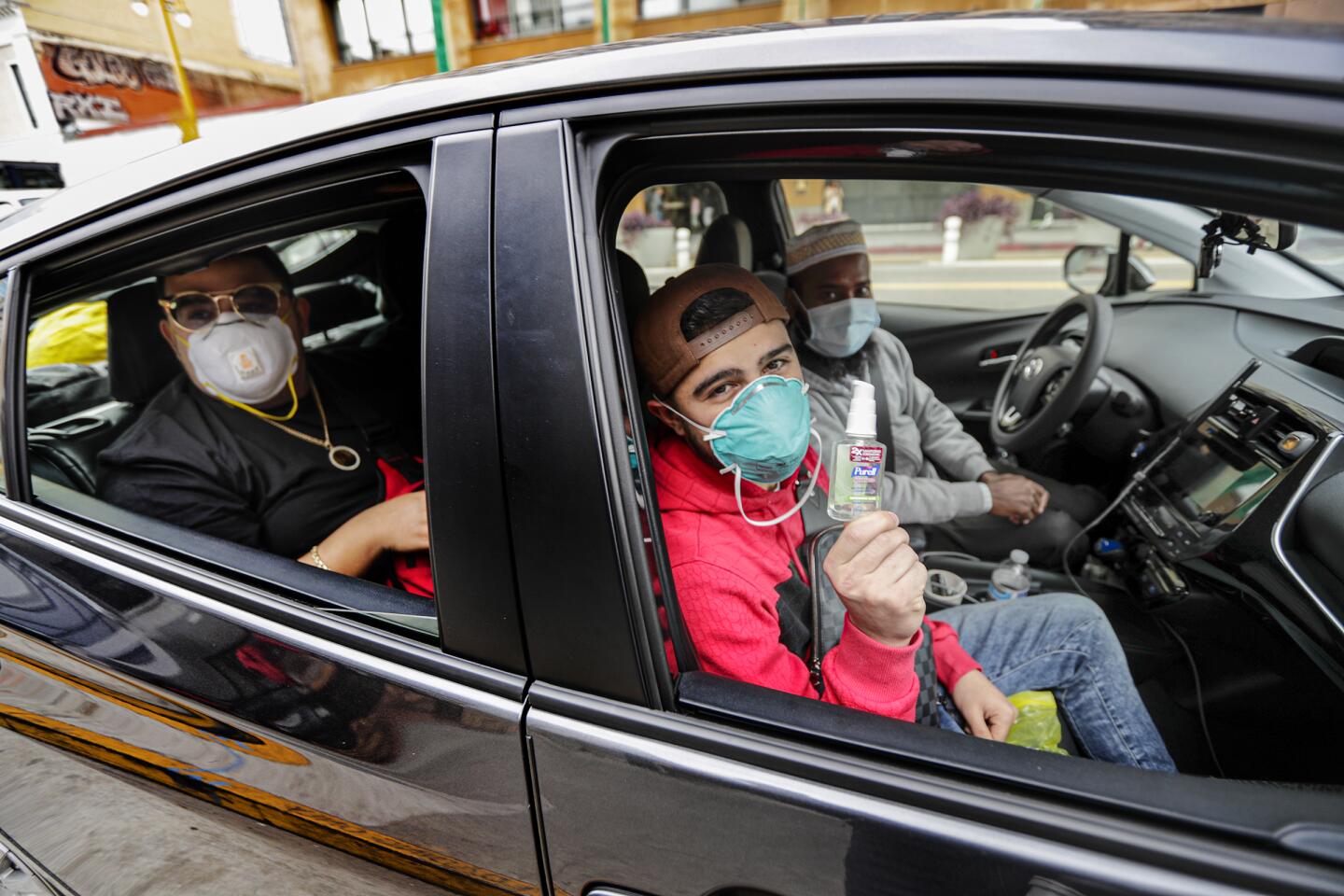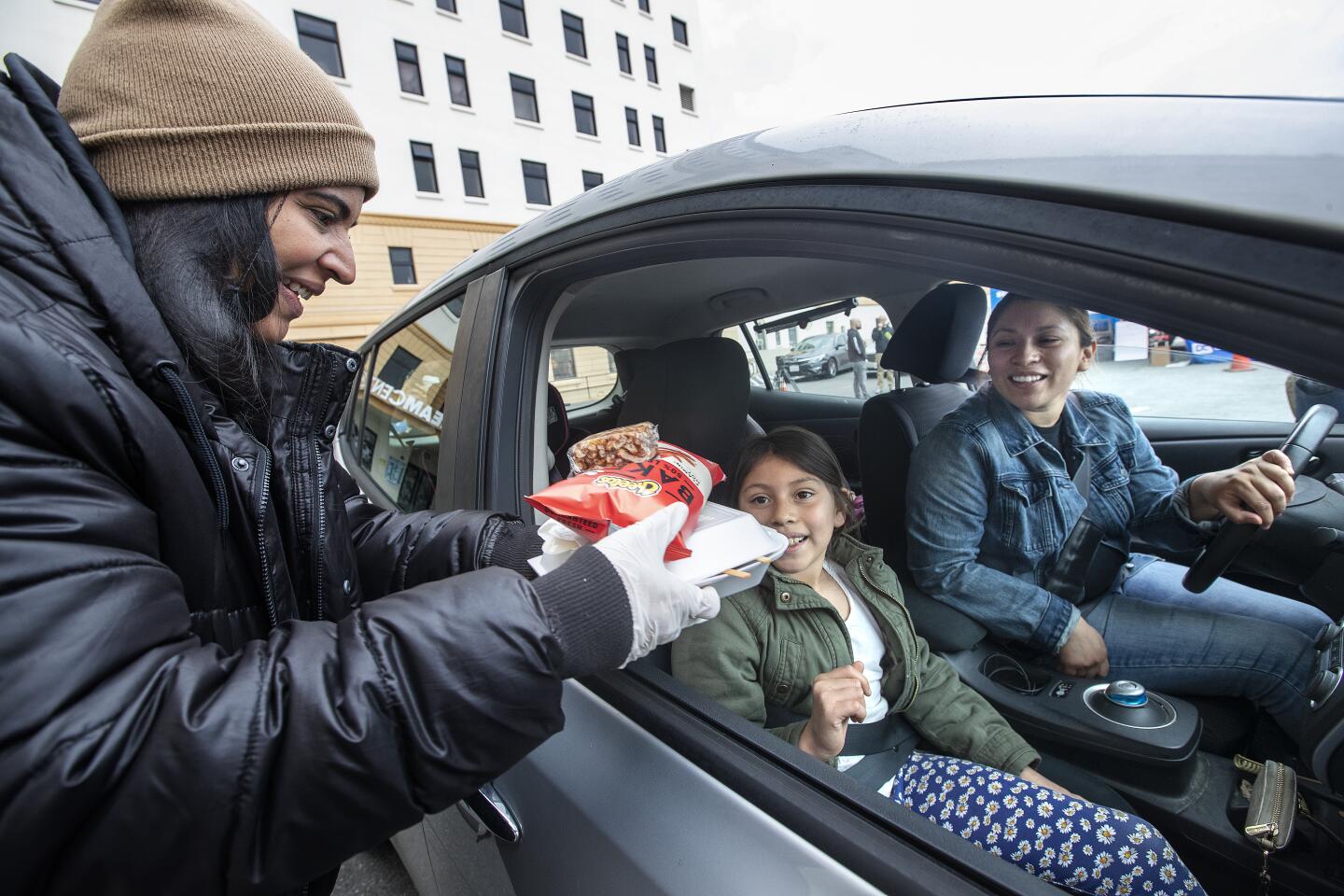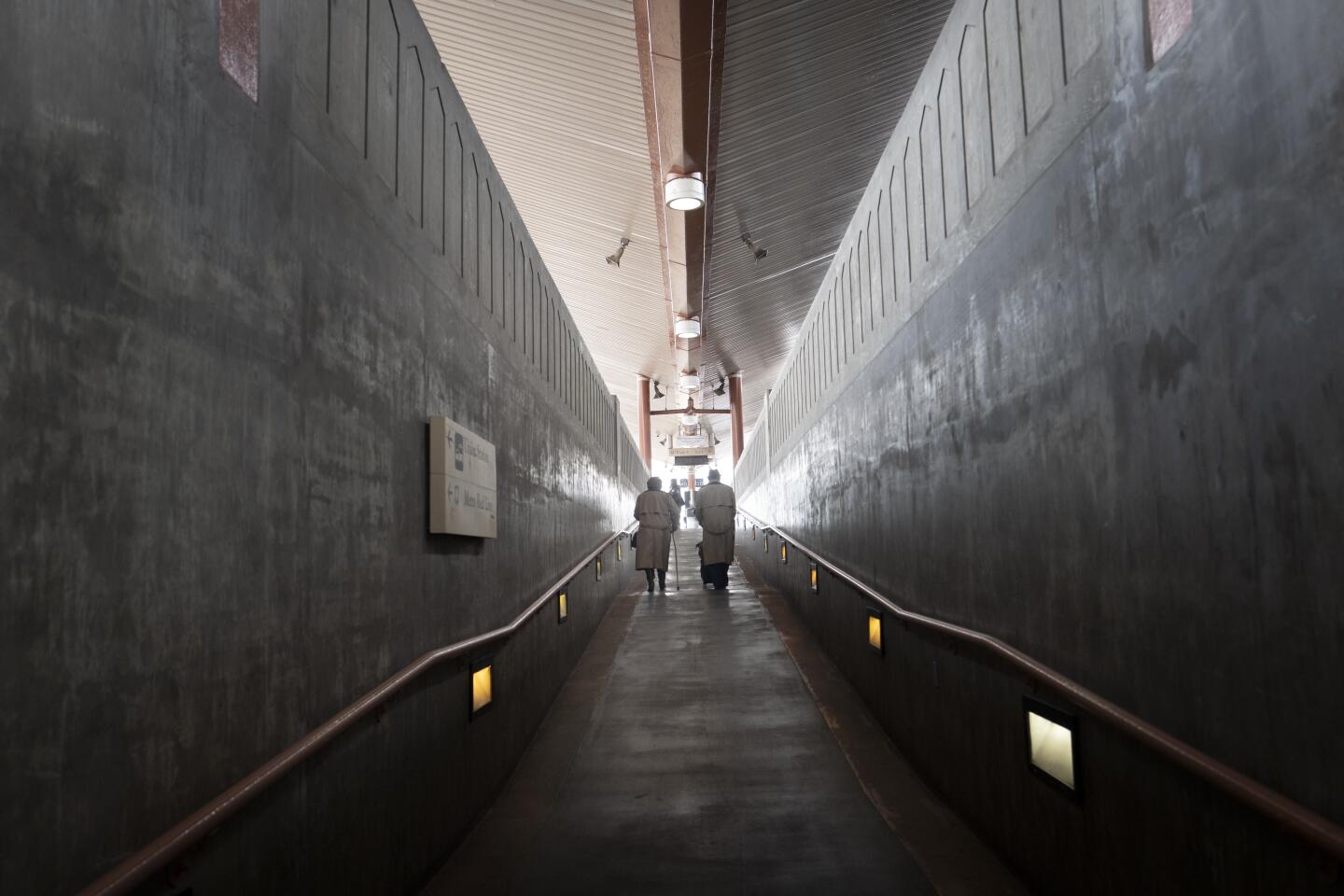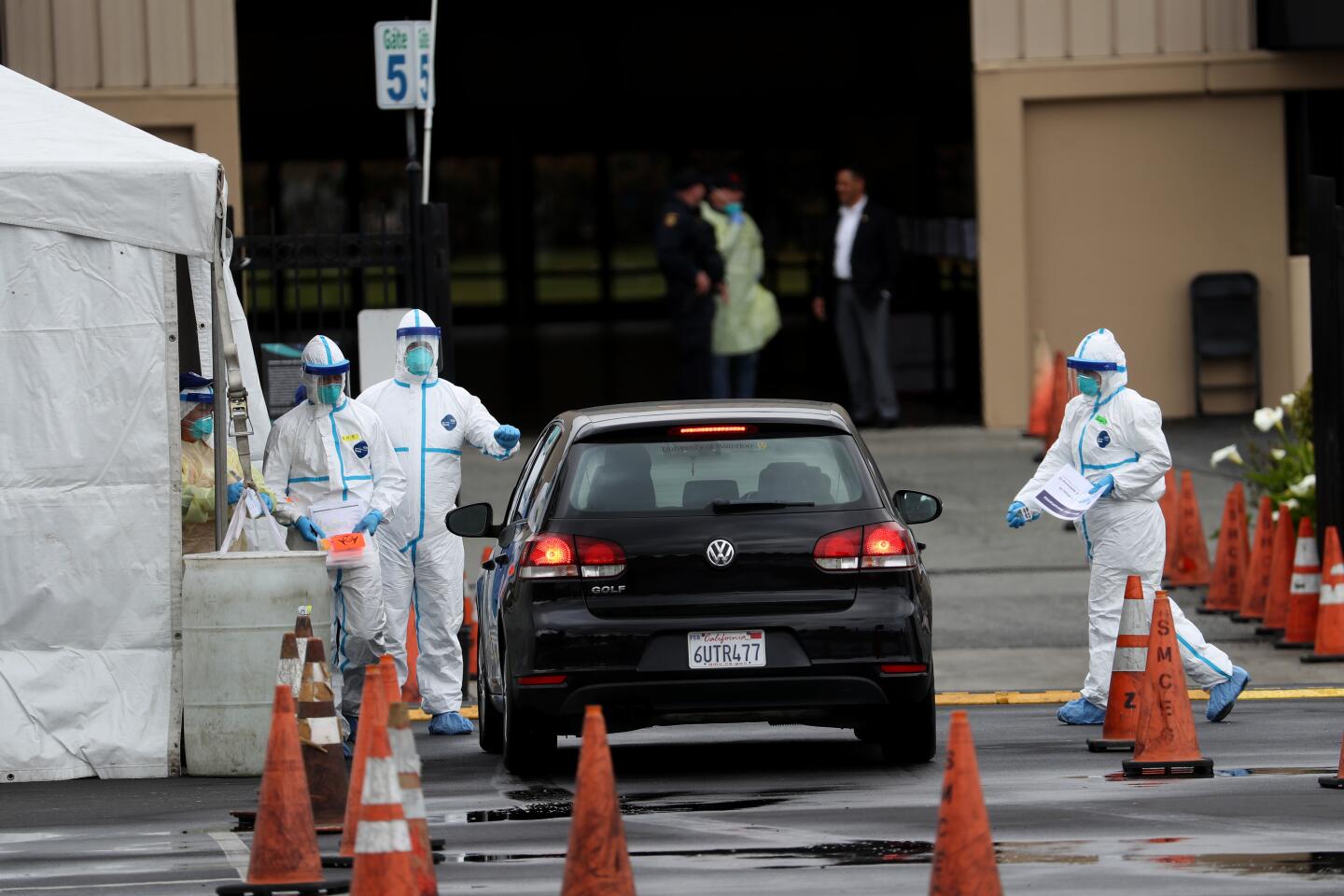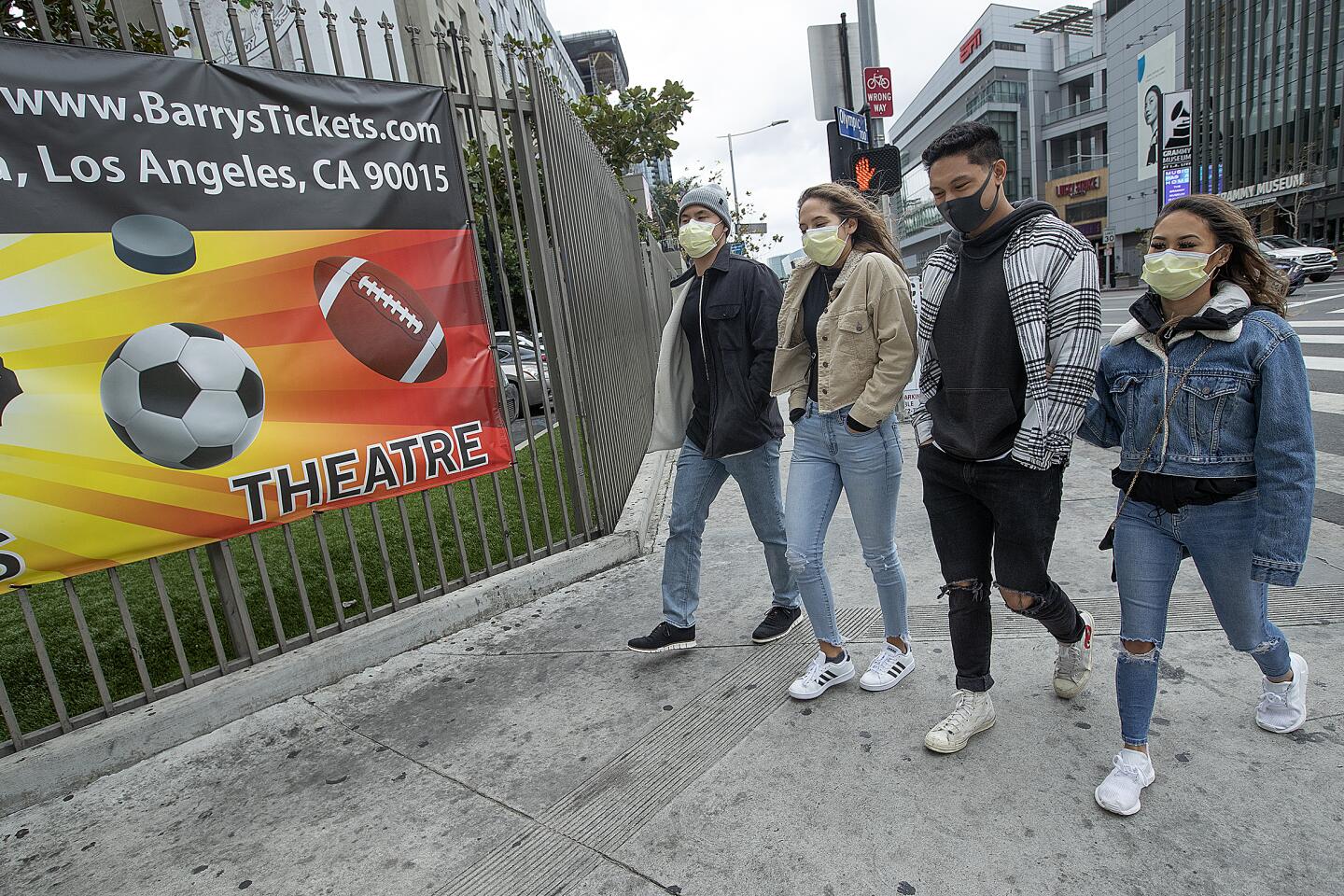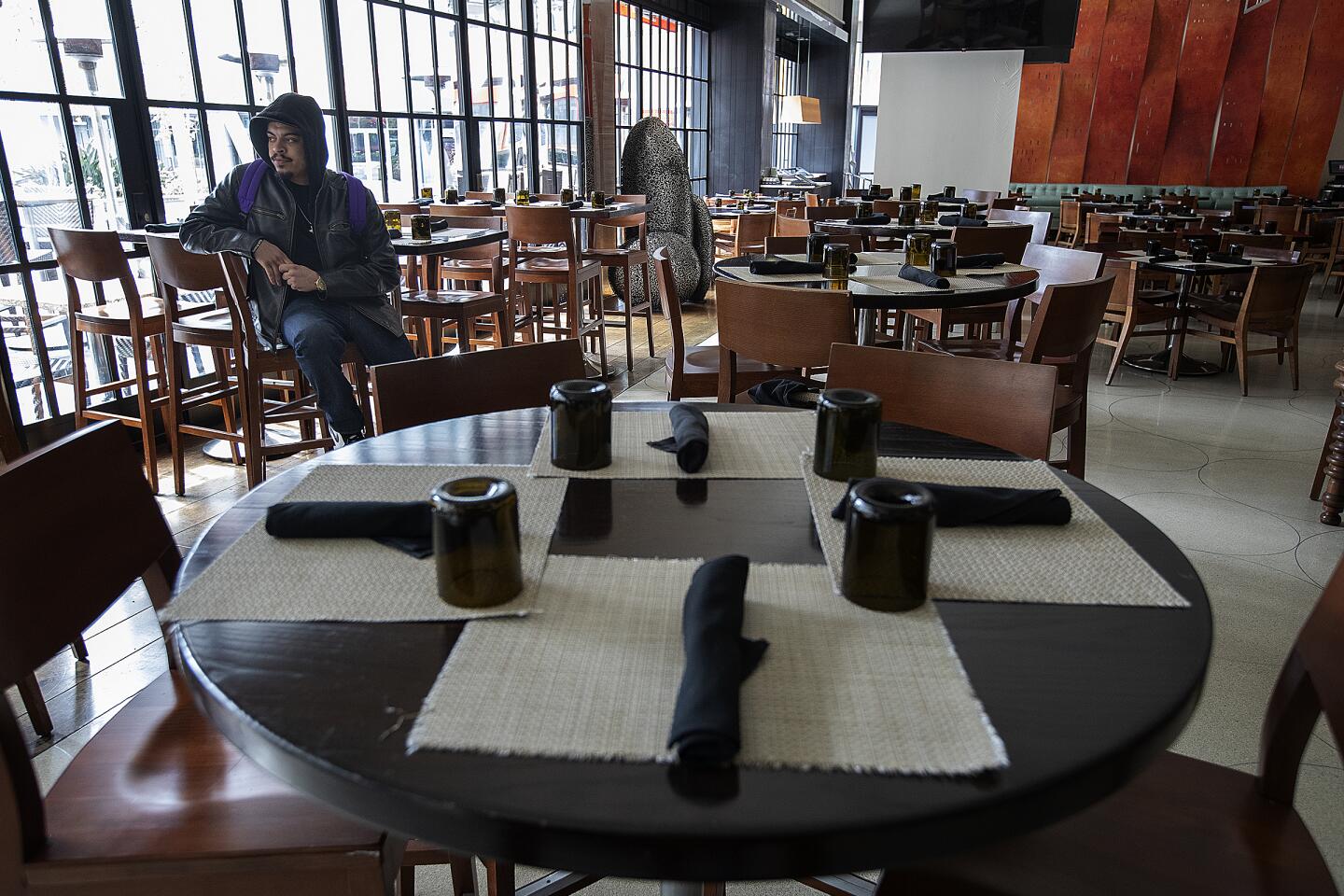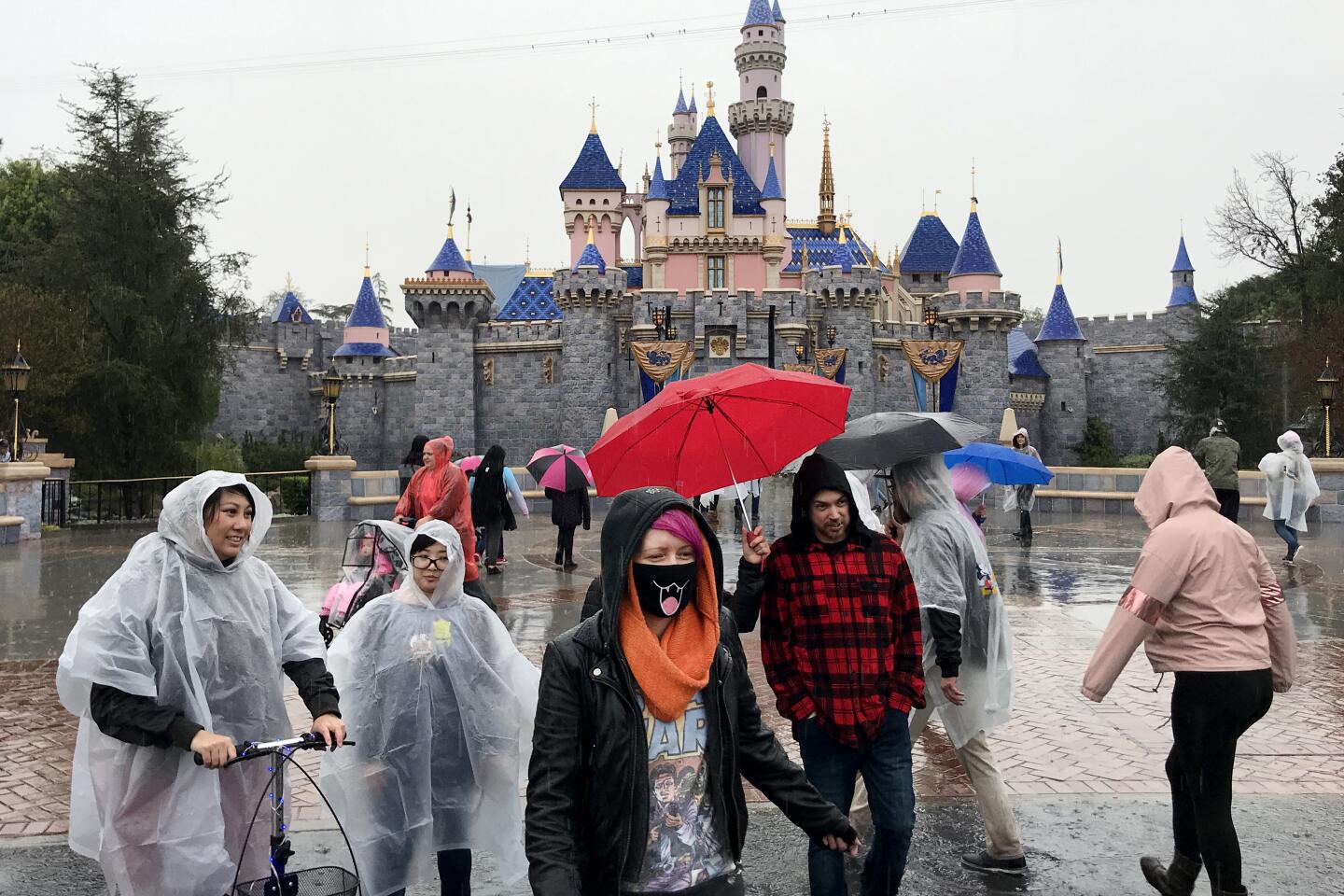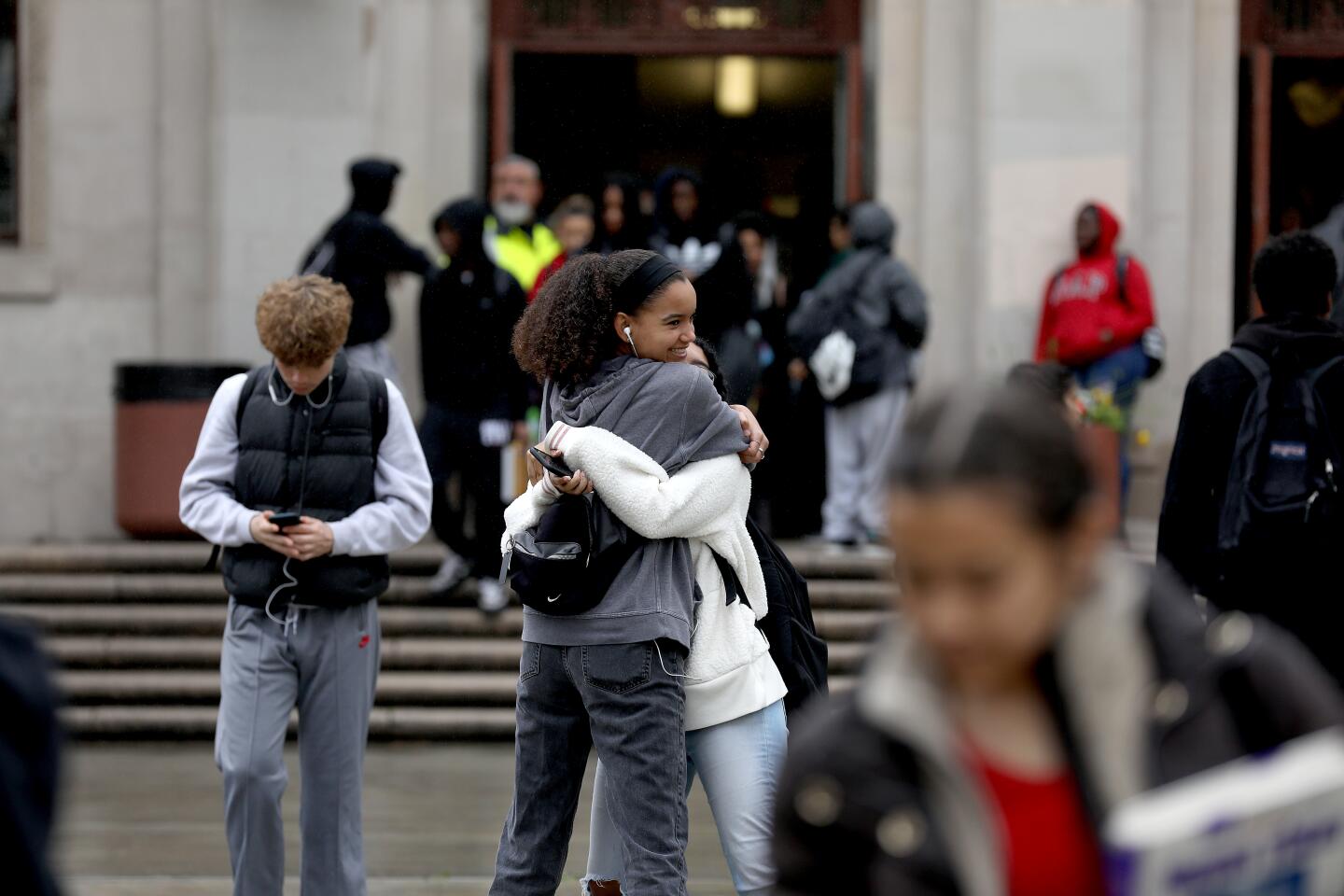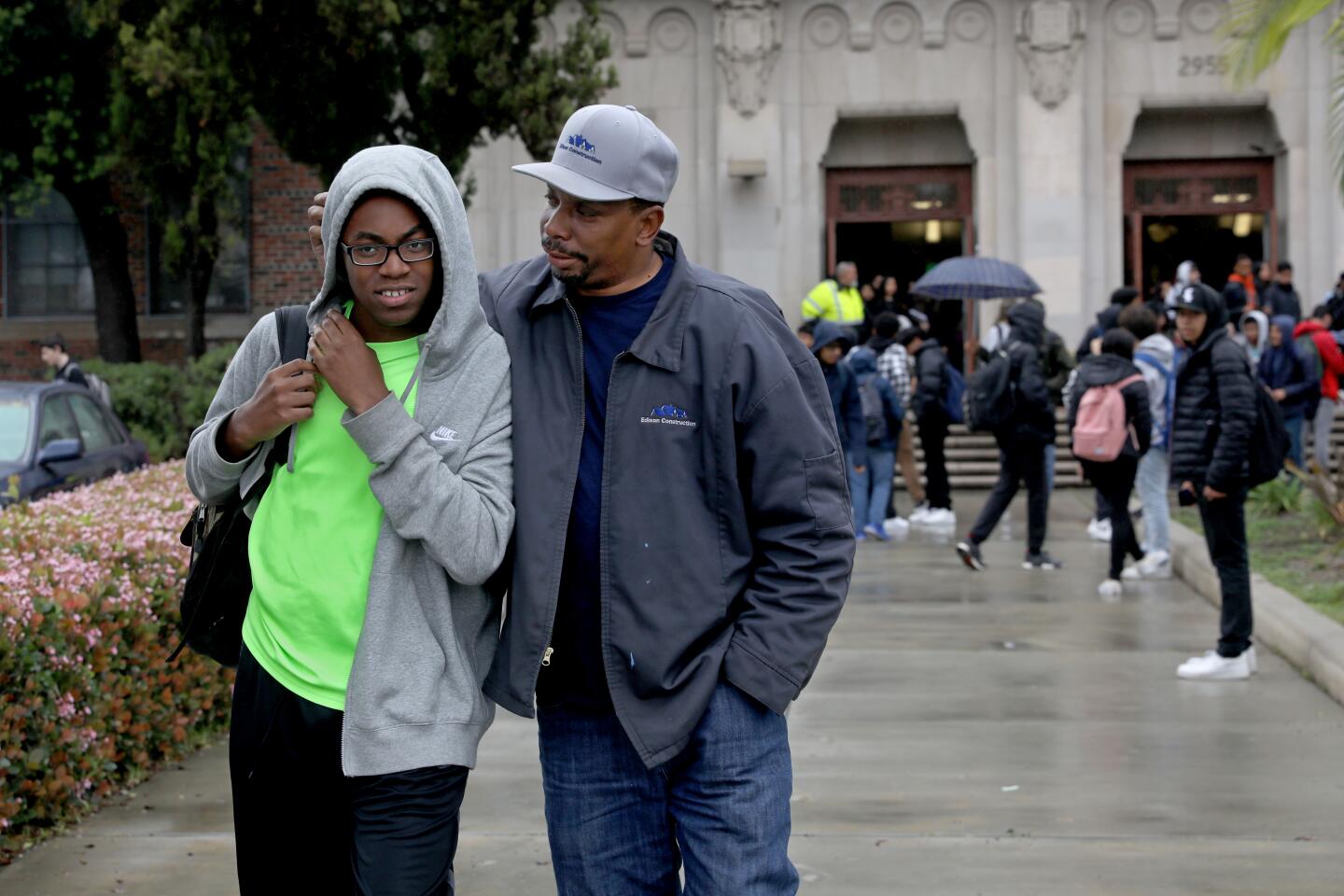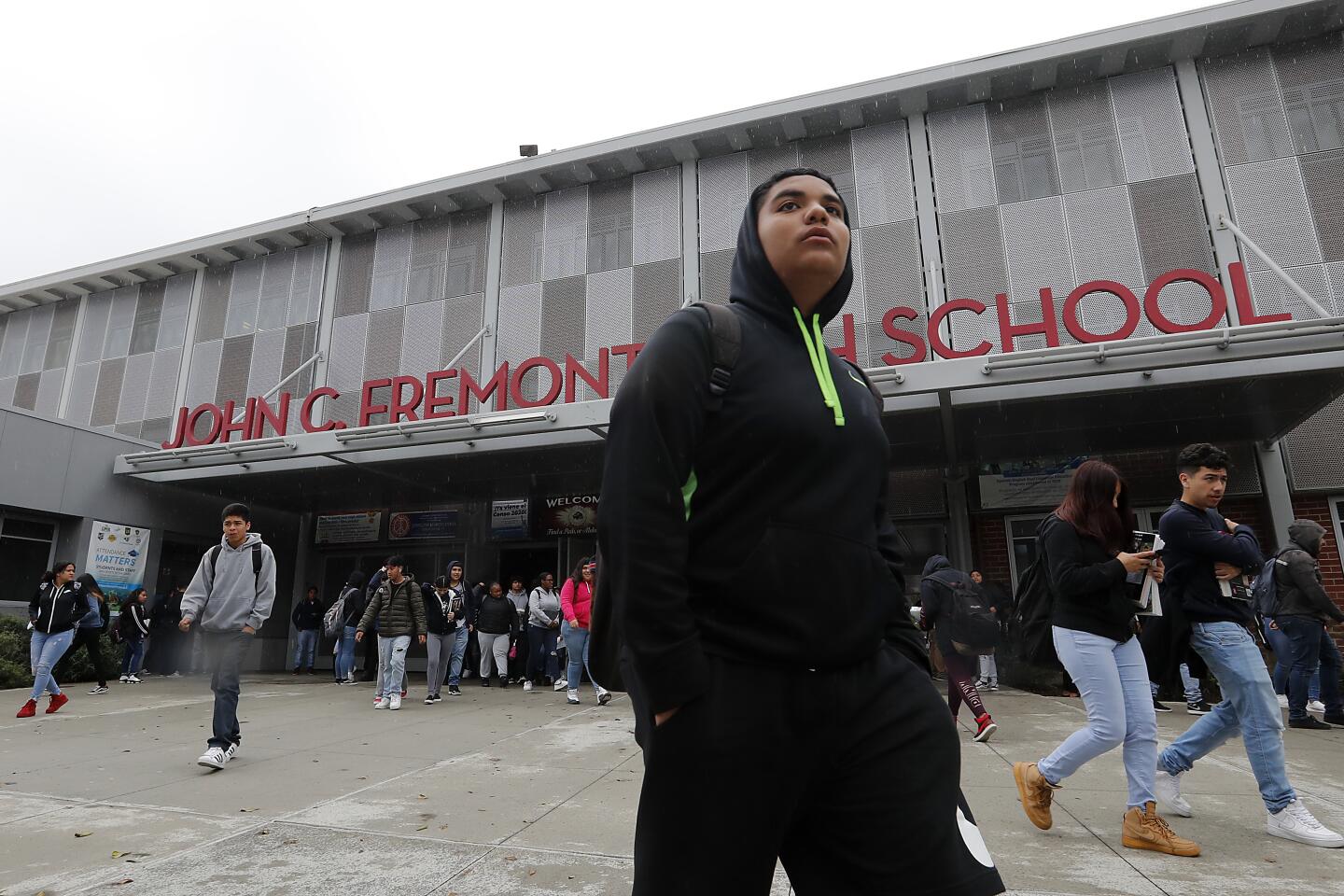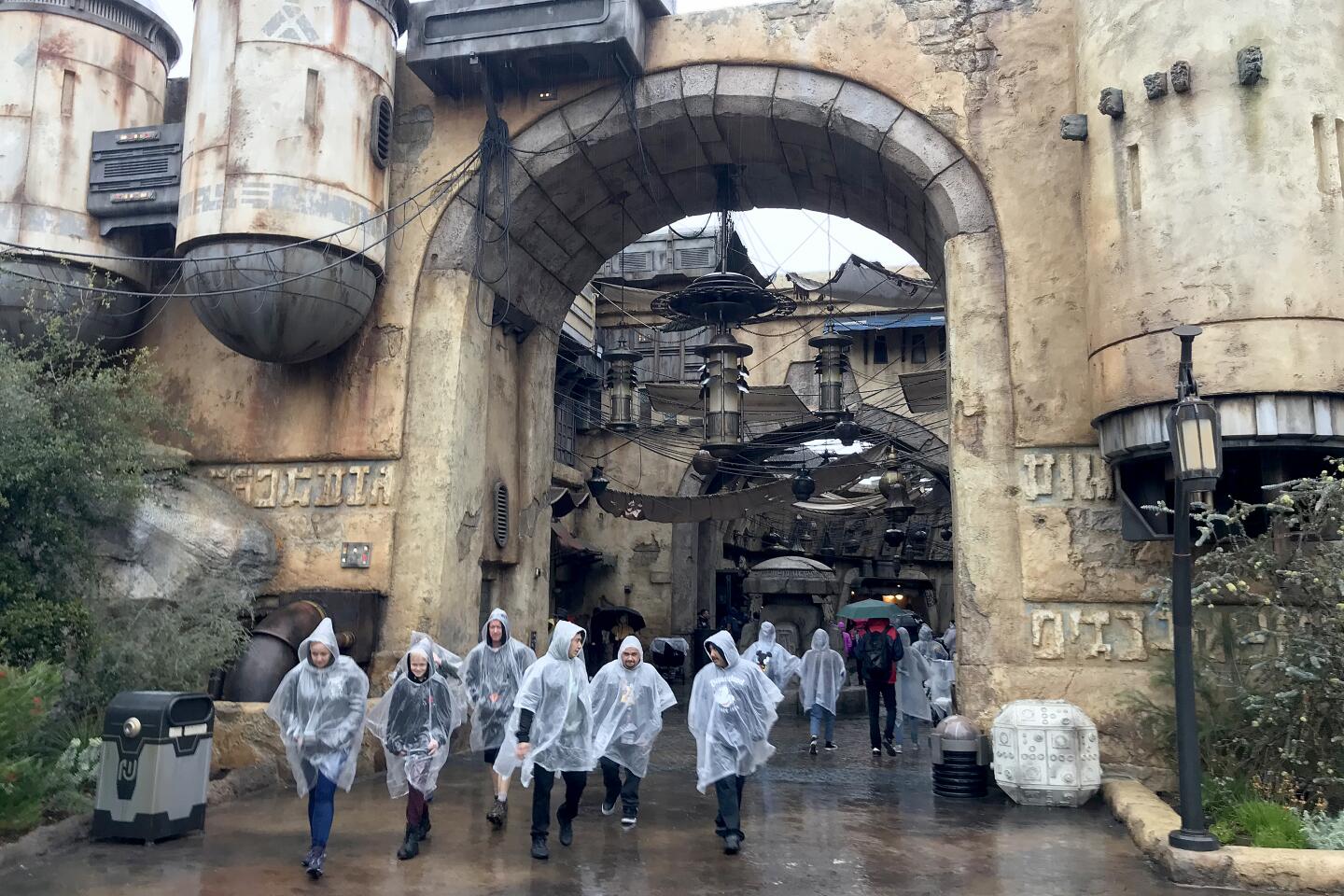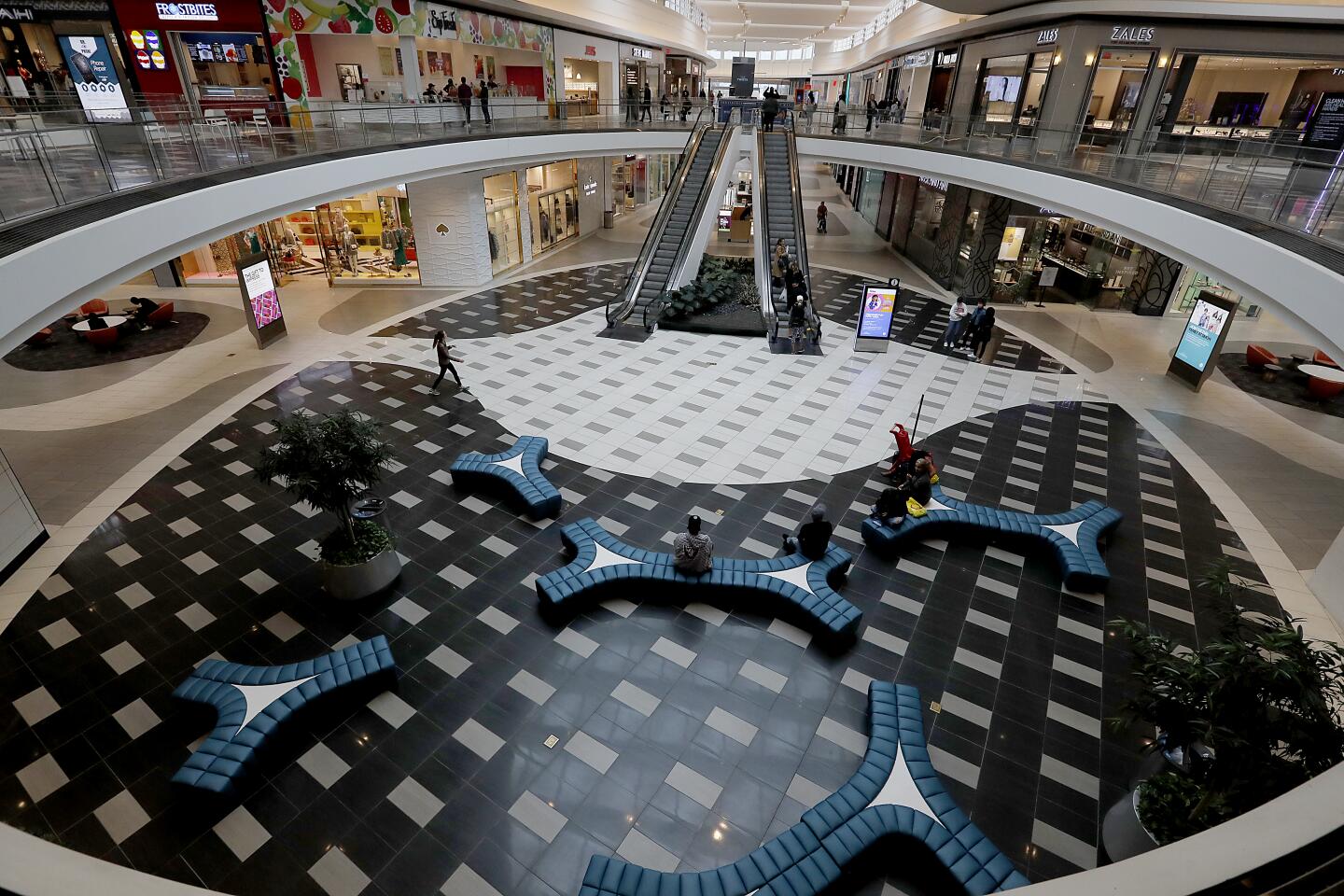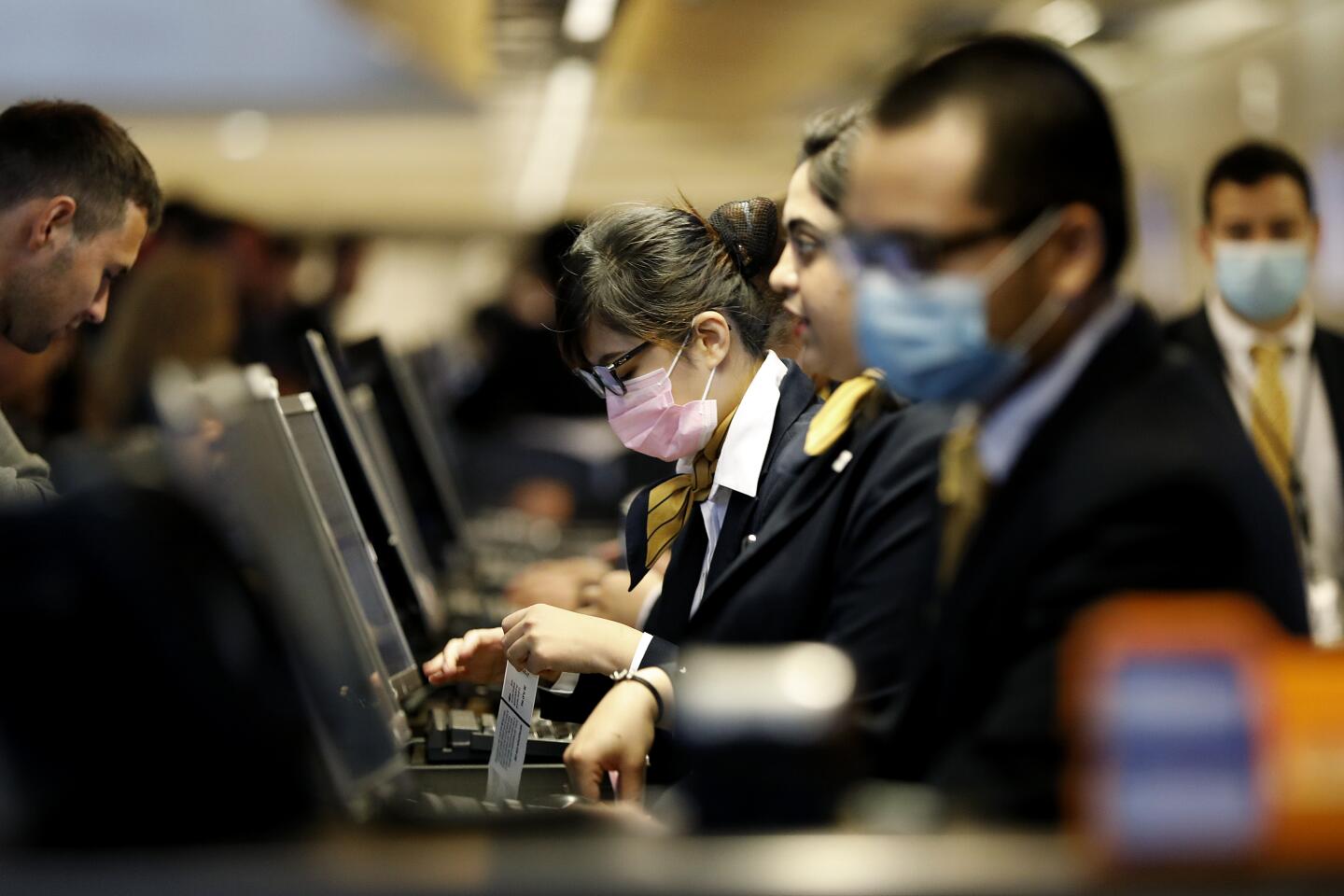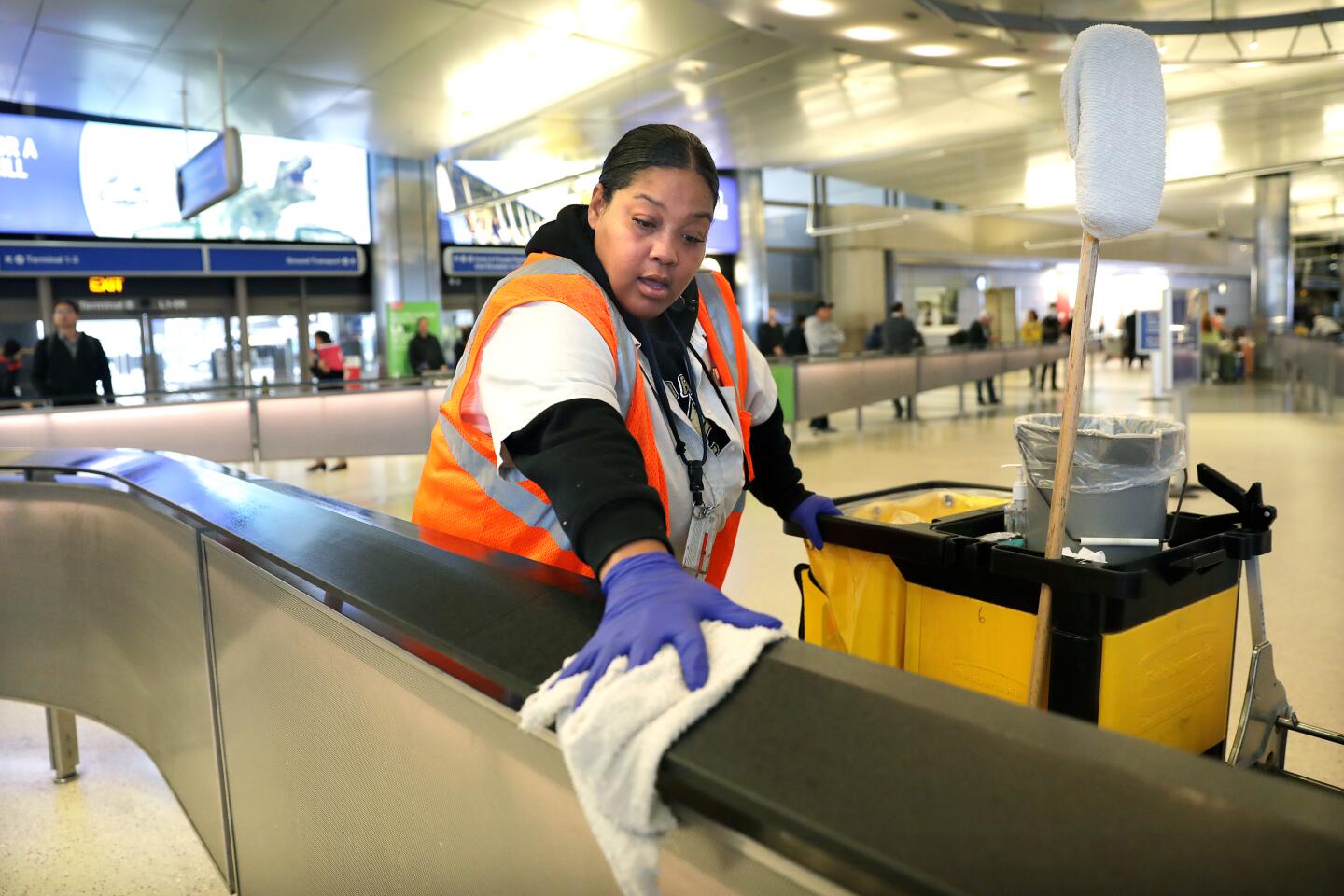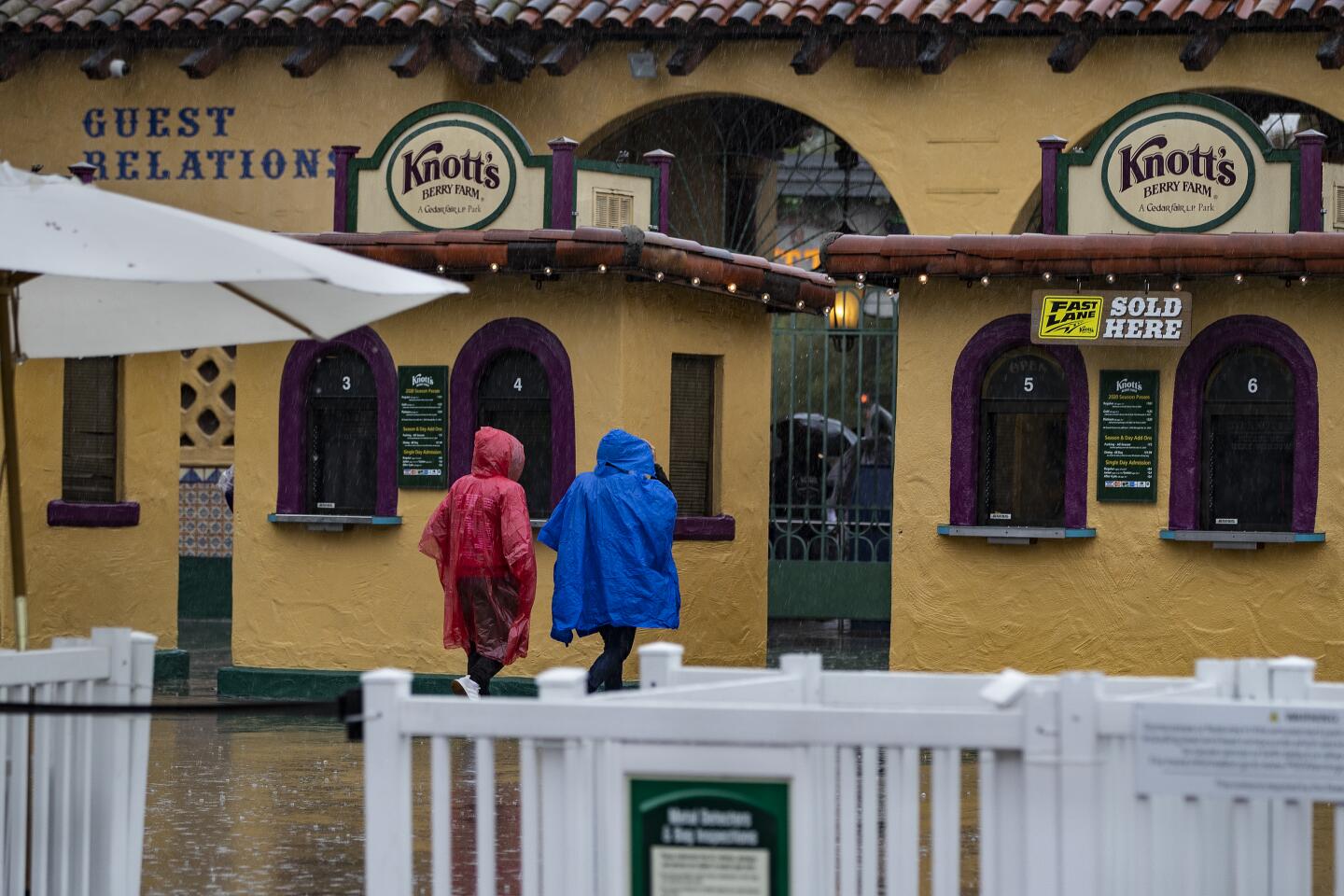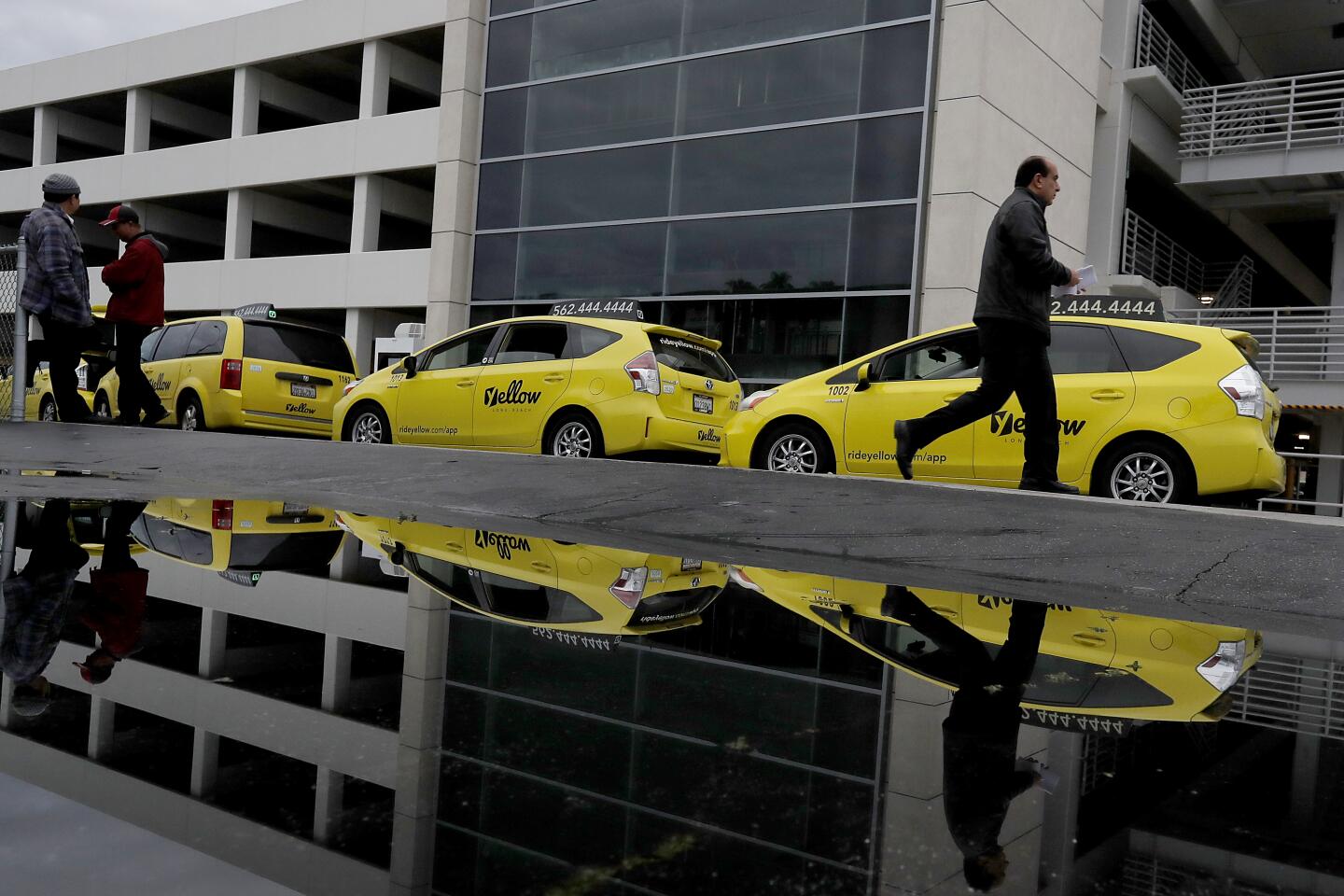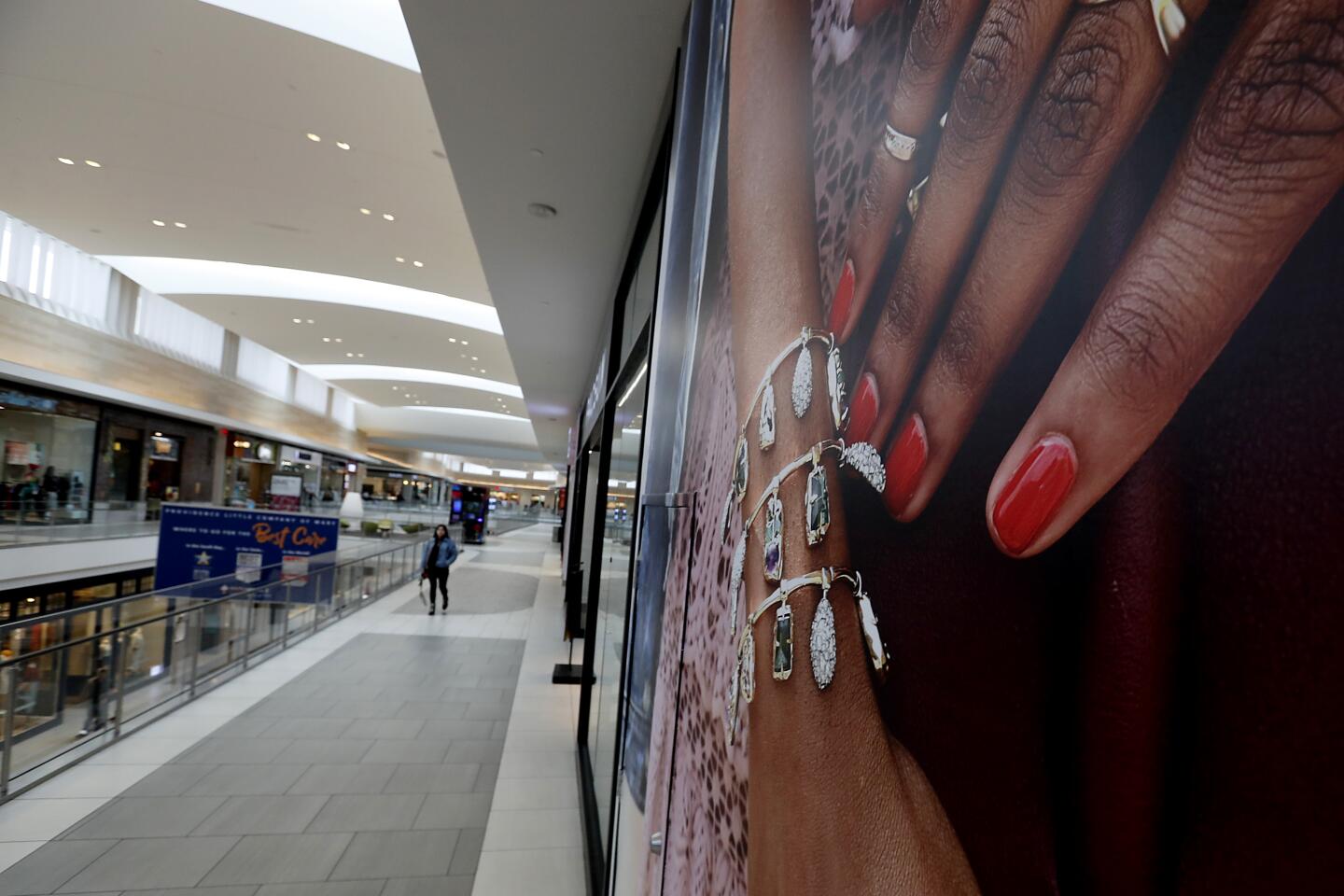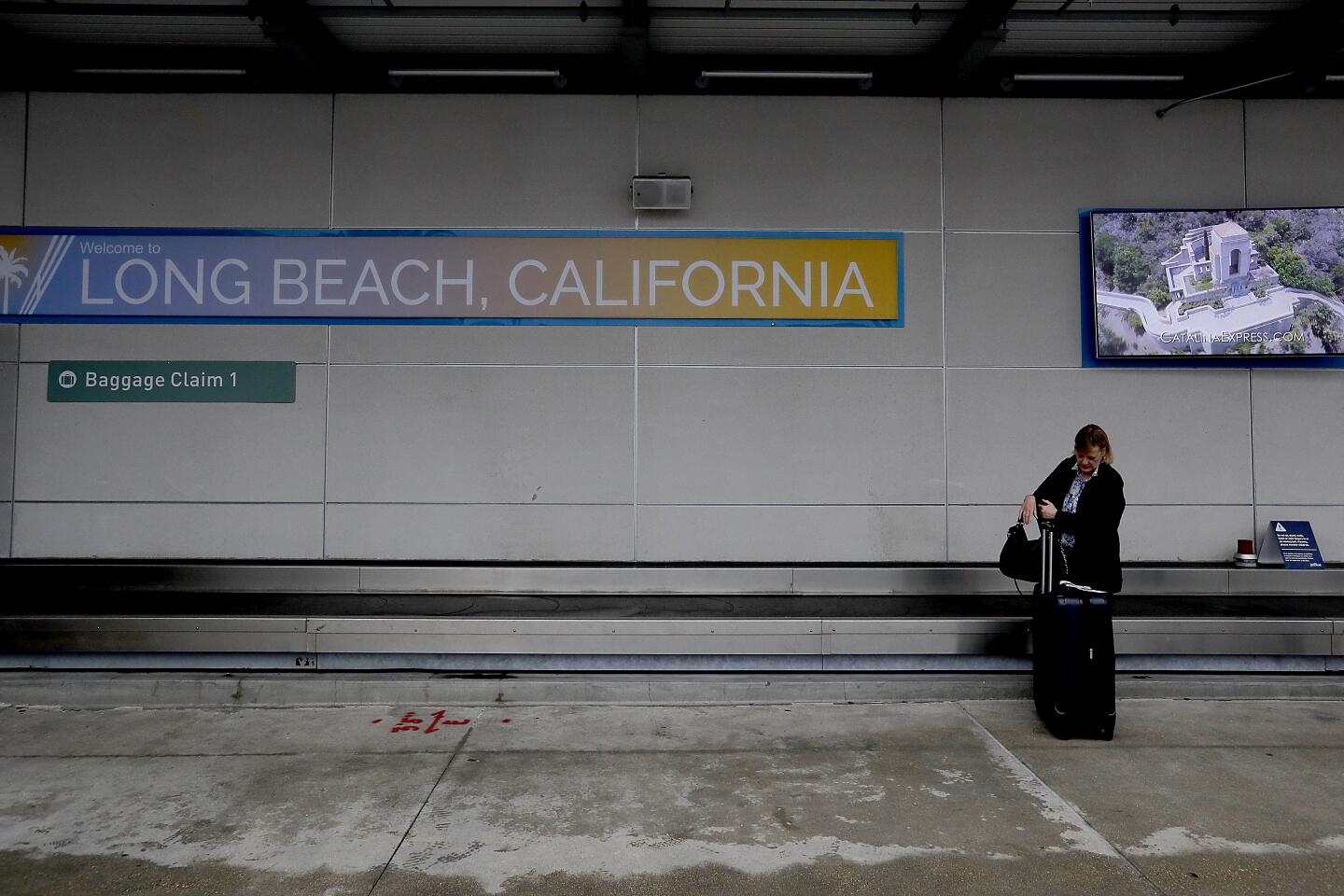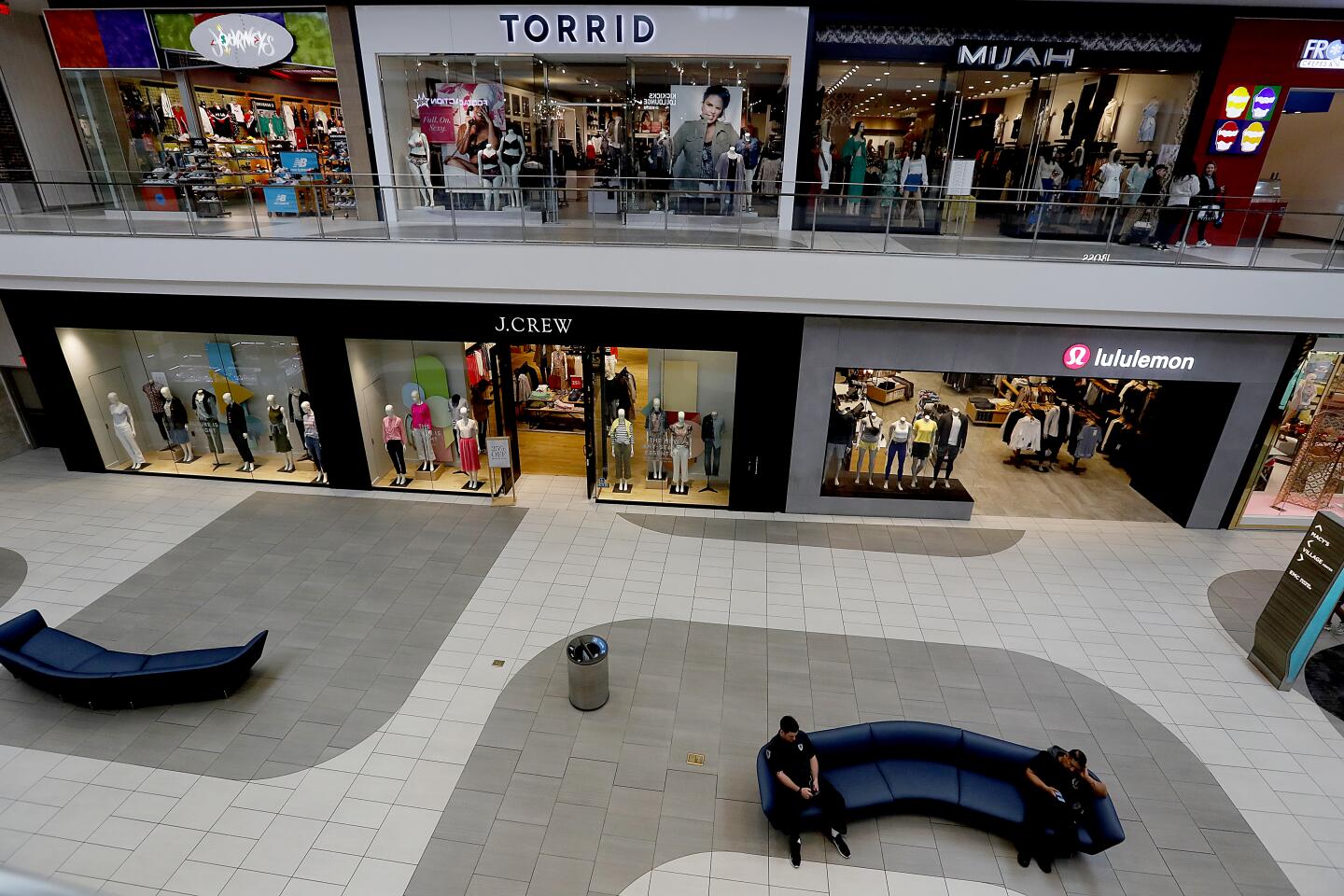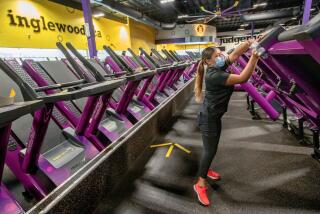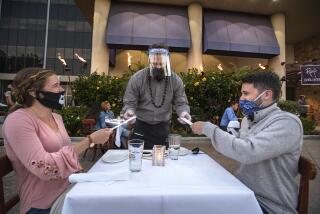A quieter L.A. on Day 1 of expanded coronavirus closures
- Share via
The security guards walked in pairs through the Grand Central Market in downtown Los Angeles on Monday like sentries guarding against the coronavirus. “No dining in!” they shouted. “Only ordering out!”
Most of the food stalls at the market, usually bustling with hipster foodies, tourists and downtown office workers, were closed. The few lines of customers waiting for food-to-go were short. Chairs were stacked on tables. Employees constantly sanitized everything.
Minerva Torres, who runs a produce stall, surveyed the quiet market and worried aloud about keeping her business afloat, paying rent and supporting her children in college.
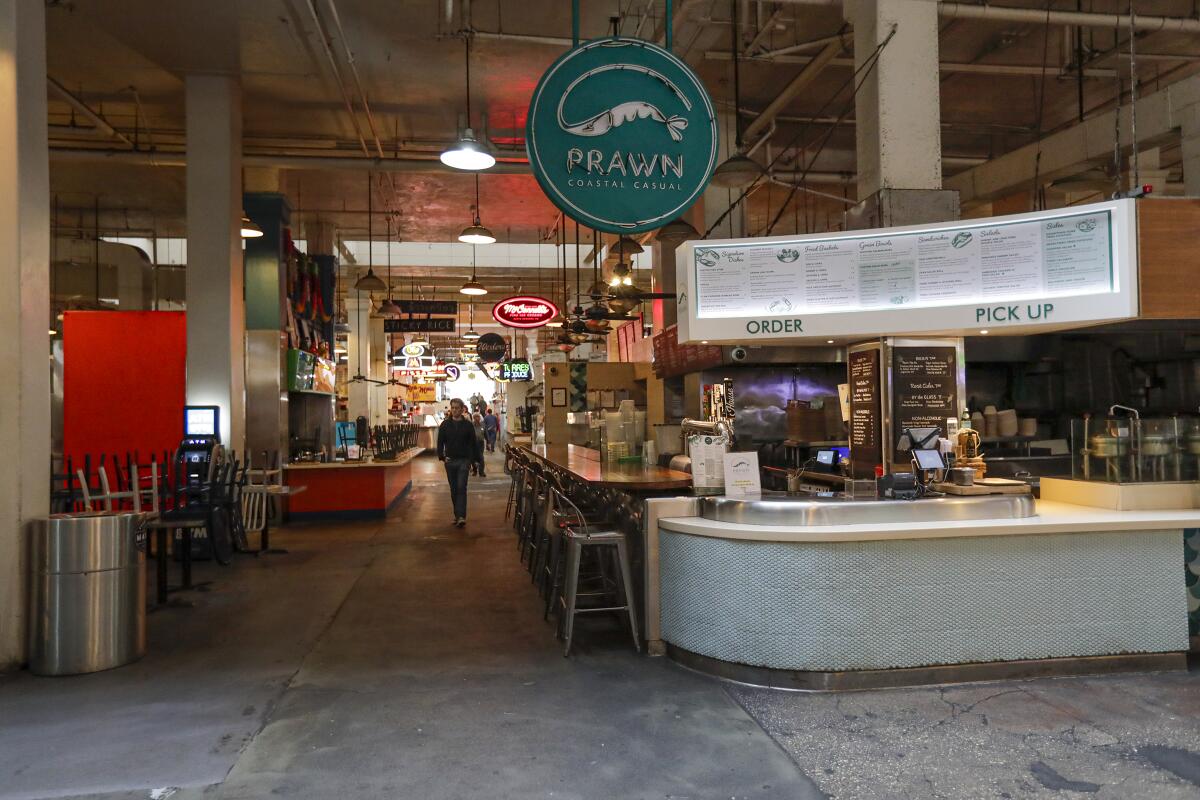
“I think all this adds to the hysteria,” said Torres, 47, as a few customers picked through her onions and tomatoes. “This is very strange.”
It was the first day of a slower, more anxious new reality in California as emergency restrictions to slow the spread of the novel coronavirus took effect.
A dramatic quelling of business and public life started Sunday, when Gov. Gavin Newsom urged people 65 and older and those with chronic health conditions to isolate themselves. Hours later, L.A. Mayor Eric Garcetti ordered bars, movie theaters and gyms to close and restaurants to halt dine-in service and limit business to takeout orders and delivery.
On Monday, Los Angeles County officials announced similar closures and eatery restrictions for all 88 cities and unincorporated regions in the county.
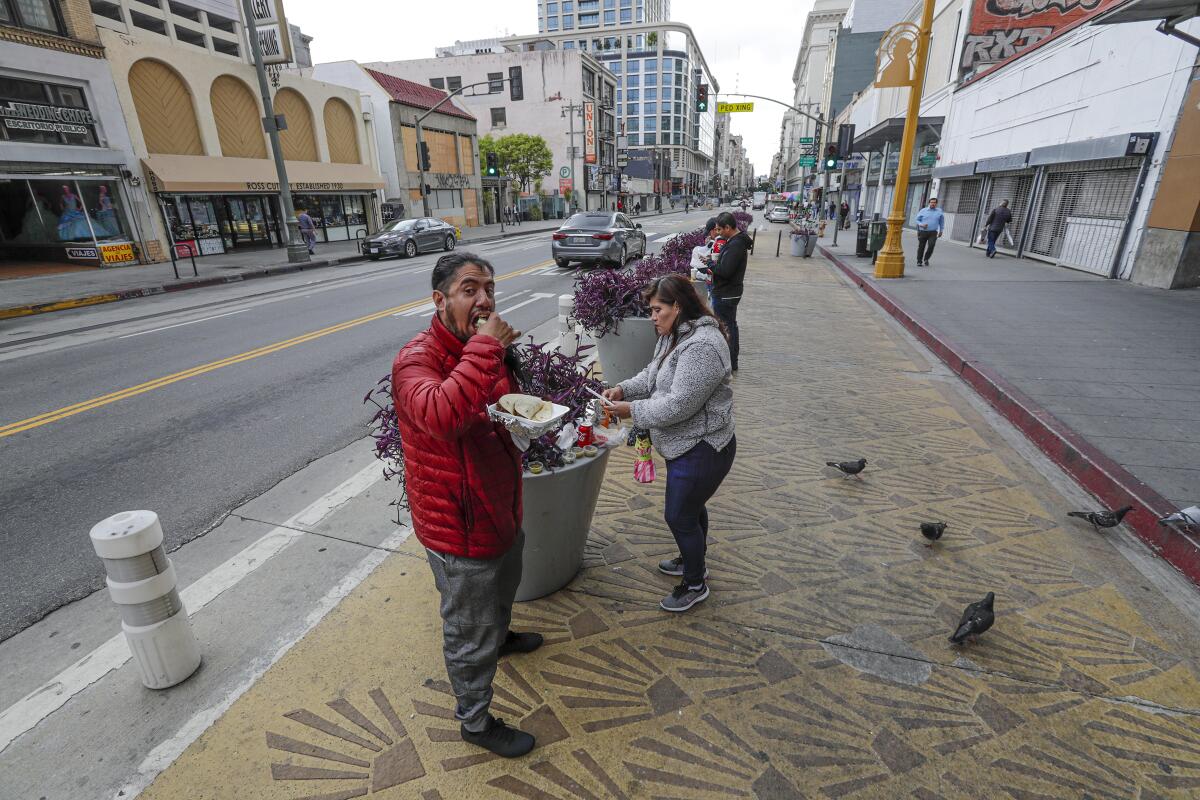
Californians were reacting to the escalating orders on Monday — which also marked the start of closures for major school districts, including Los Angeles Unified — with a mix of anxiety, frustration and defiance.
Jose Reyes, 80, walked into Langer’s Deli in Westlake to order pancakes, cream of wheat and coffee to go. Reyes has been coming to the famed pastrami purveyor for the last four decades, and he planned to continue.
“We shouldn’t panic too much,” Reyes said. “I take precaution. I wash my hands and try to stay indoors, but I also need to live a life.”
“If it’s my time to go and it’s because of the coronavirus, then so be it.”
Owner Norm Langer was irked by Garcetti’s orders, saying they would limit people’s food options, instill panic and devastate the restaurant industry. Monday marked the first time in 72 years that his deli was not allowing people to eat inside the restaurant during regular hours, he said.
“I think it’s a big mistake,” Langer said. “You want social distancing, fine. We can put that in effect.”
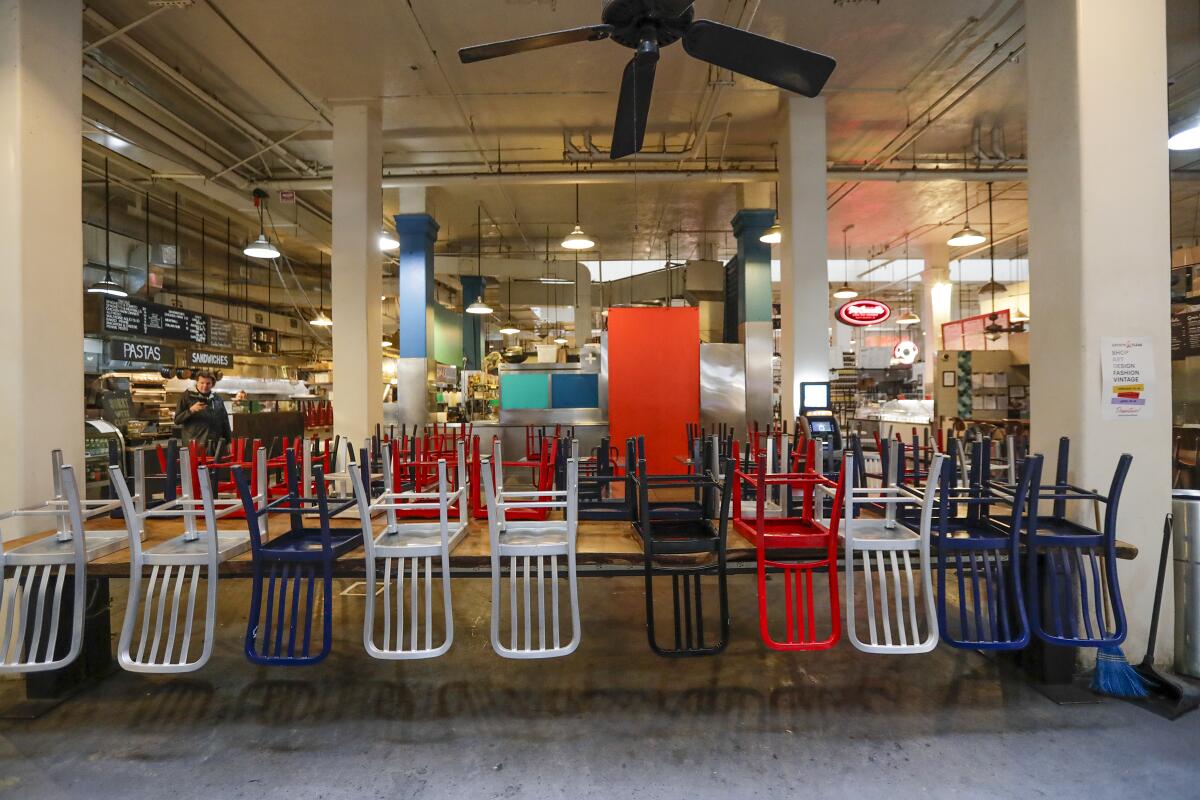
Langer told most of his 40 employees to stay home and was working with a staff of 11. They were doing curb service and takeout and had signed up for delivery apps. The deli already took a financial hit when groups last week started canceling St. Patrick’s Day food orders worth thousands of dollars.
Langer, 75, said that despite his age, he could not just stay home, as the governor recommended.
“We are a union house,” Langer said. “I have 40 employees that are part of my family, and they’re dependent on me. I’m responsible for their livelihood and for their medical care.”
On Monday, President Trump advised people to avoid groups of more than 10 and to stay away from bars, restaurants and food courts. In the hard-hit San Francisco Bay Area, residents of seven counties were ordered to shelter in place, a move that will close virtually all businesses and direct residents to stay home for the next three weeks.
In L.A., the freeways already were eerily empty, a phenomenon that many found unsettling because it meant people were not working.
Reyes Quintanar, 38, and his wife, Olga Martinez, 40, drove from Anaheim to downtown L.A. to buy jewelry for family in Mexico. They thought more businesses would be open downtown. They were wrong.
The couple were eating outside Grand Central Market, and Quintanar squeezed a lemon on his hands in an effort to clean them before biting into a carnitas taco.
“It’s scary, sad and ugly,” he said of the empty market. “We shouldn’t be living like this. It’s good to wash your hands and be cautious, but we should be able to go about and live our lives like we normally do.”
Security guards then came by to tell them they could not sit outside the market and had to leave.
In MacArthur Park, clinics and small clothing stores were open. Police officers patrolled on foot, sipping coffee from Subway. Street food vendors lined up on Alvarado Street, but business suffered.
“People are scared to buy,” said Felipa Silva, 50, who started selling pastries and sweet corn milk around 5:30 a.m.
On a normal day, all of her food would be gone within two and a half hours. On Monday, it was nearly 9 a.m., and Silva had barely sold half. She had another setback when city enforcement officers told the vendors they could not sell on that part of the sidewalk. She packed up and left.
In Koreatown, Samantha Garay, a cook at Post & Beam in Baldwin Hills, shopped at a GameStop for a Nintendo Switch to keep her sane while she’s stuck at home as her boss figured out new work schedules.
Garay, 30, said many of her friends and co-workers are scrambling to figure out what to do. Though she’ll continue to cook for deliveries and to-go orders, the restaurant has cut hours to bartenders, servers and hosts, she said.
“We had our schedules for the next three weeks until yesterday,” she said. “We’d gotten a heads up that it’s probably going to be a mandatory shutdown, but we were going to go until the wheels fall off.”
Garay did not see the business closures and restrictions as an overreaction.
“Unless you shut everything down, people are still going to go out and do what they do,” she said. “I live downtown and people were still at bars and partying like nothing, so I feel like if everyone was a little more responsible it might not have had to go this far.”
In other L.A. County cities, many restaurants were still open to dine-in eaters before the countywide restrictions were announced midday. Crowds were slim to nil.
At noon — what would, in ordinary times, be peak lunch hour — Ko Hyang Tofu House in San Gabriel was empty. Benny Xue could not recall so severe a slump in business in the 10 years he has waited tables there. By midday, Xue said, the restaurant would have ordinarily turned 20 tables; now, they are lucky to get five.
Xue has seen his hours cut from seven a day to five or six. Not only is he earning less in wages, but his income from tips had fallen about 50%, he said.
At the Little Swan Bakery in Alhambra, Vanessa Mach, 23, boxed up pastries with gloved hands and issued muffled “thank yous” to customers through a purple mask.
Mach, a nursing student at Cal State Los Angeles who works about 12 hours a week at the bakery, was worried that the county would issue an order similar to Garcetti’s. She was soon proved right.
“I doubt I’d find another job, but I’d have to look,” Mach said. One of her friends, a receptionist at a physical therapy center, lost her job and is now seeking work as a baby-sitter.
Outside the bakery, a supermarket and a closed seafood restaurant showed two symptoms of the pandemic. Cali Mart Market was thronged with shoppers, its butcher case crushed with people trying to buy pork loin, short rib and chicken thighs. A few doors down, Top Island, a Cantonese seafood and dim sum restaurant, was closed until May.
Along The Strand in Hermosa Beach, a flashing electronic sign advised the dog-walkers and joggers: “AVOID GATHERINGS. COVID-19 LESS IS MORE.” On a bench by the sand, a woman with cropped gray hair made a phone call, her voice chipper: “Hi, dear, are you self-quarantining?”
At Good Stuff restaurant, waiters stood silently on the empty patio, waiting. Inside, every other table had no silverware, in case crowds did materialize and they needed to keep people spread out.
“I’m stressed out,” said Vi Nguyen, the general manager, who had already cut staffing levels.
Jessica DuBois, 36, and her husband, mother-in-law and 4-year-old daughter — whose preschool was closed — were the only diners and said they were being doted on by waiters. DuBois works at a nearby hotel and said it’s already hemorrhaging business.
DuBois’ family comes to Good Stuff all the time and said they wanted to help a local business while they still could. Her mother-in-law, Rosie DuBois, 69, said her husband, who has asthma, stayed home.
“We’re trying really hard to not be in a panic mentality,” Rosie DuBois said.
Down the street, friends Renee Wright and Sherry Fritzel sat outside Java Man coffee shop eating yogurt and gluten-free muffins. The women, both in their 60s, said they understood steps such as avoiding crowds but thought the restrictions on public life went too far.
“It is a serious problem,” said Fritzel, 69. “But we don’t need to freak out.”
More to Read
Sign up for Essential California
The most important California stories and recommendations in your inbox every morning.
You may occasionally receive promotional content from the Los Angeles Times.
